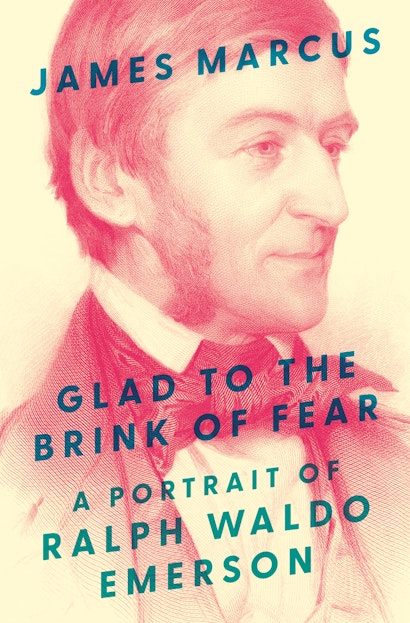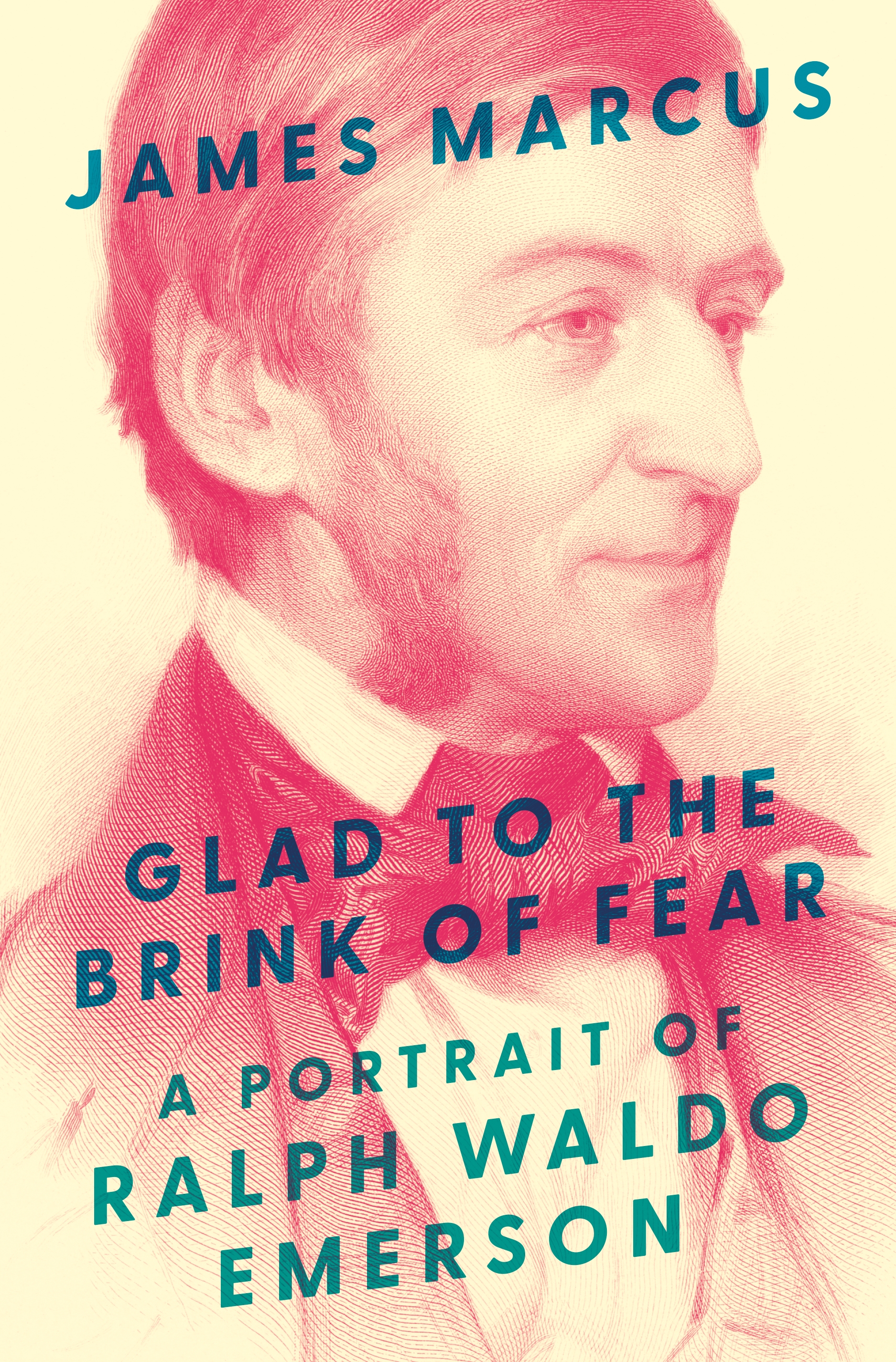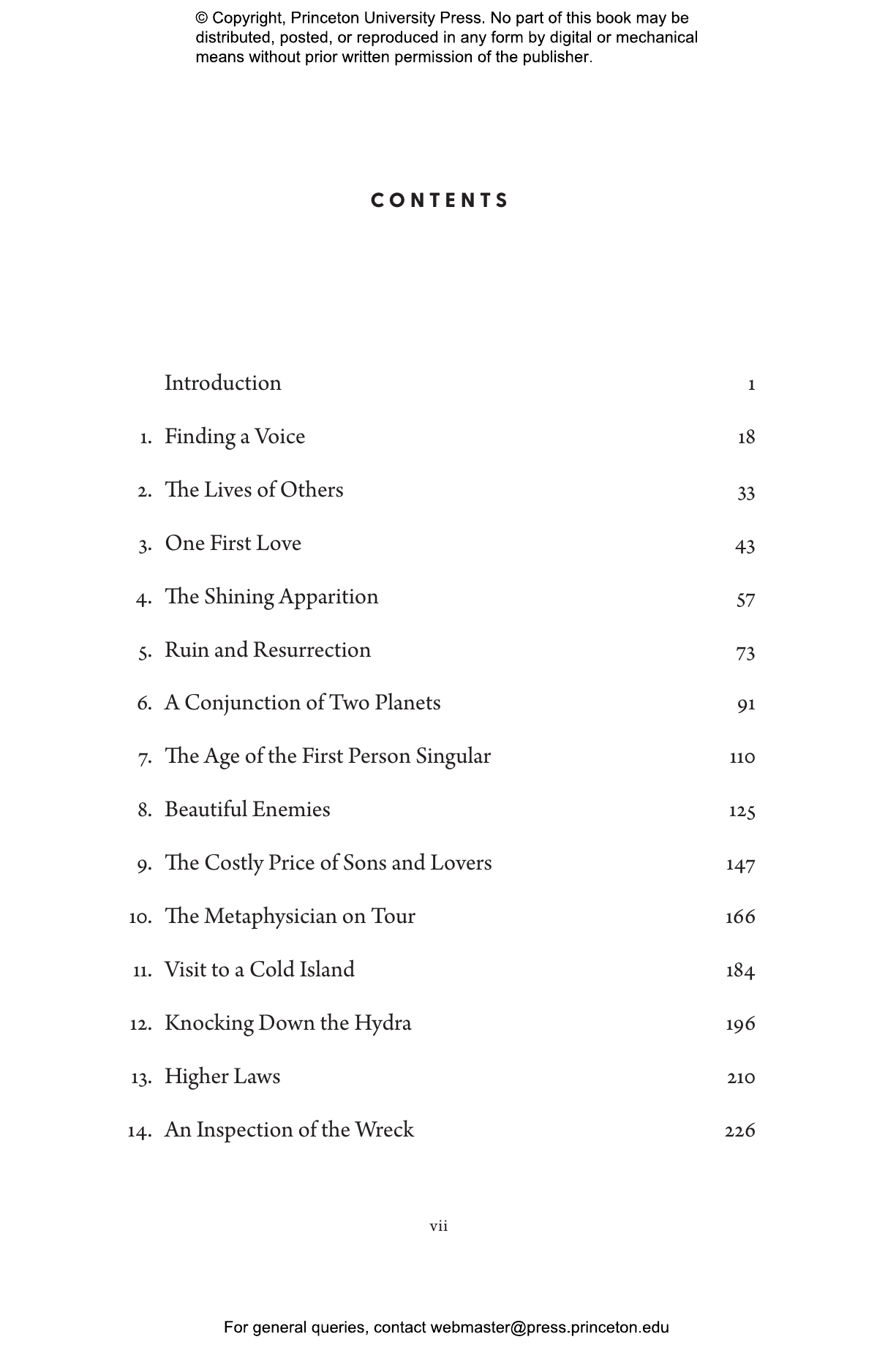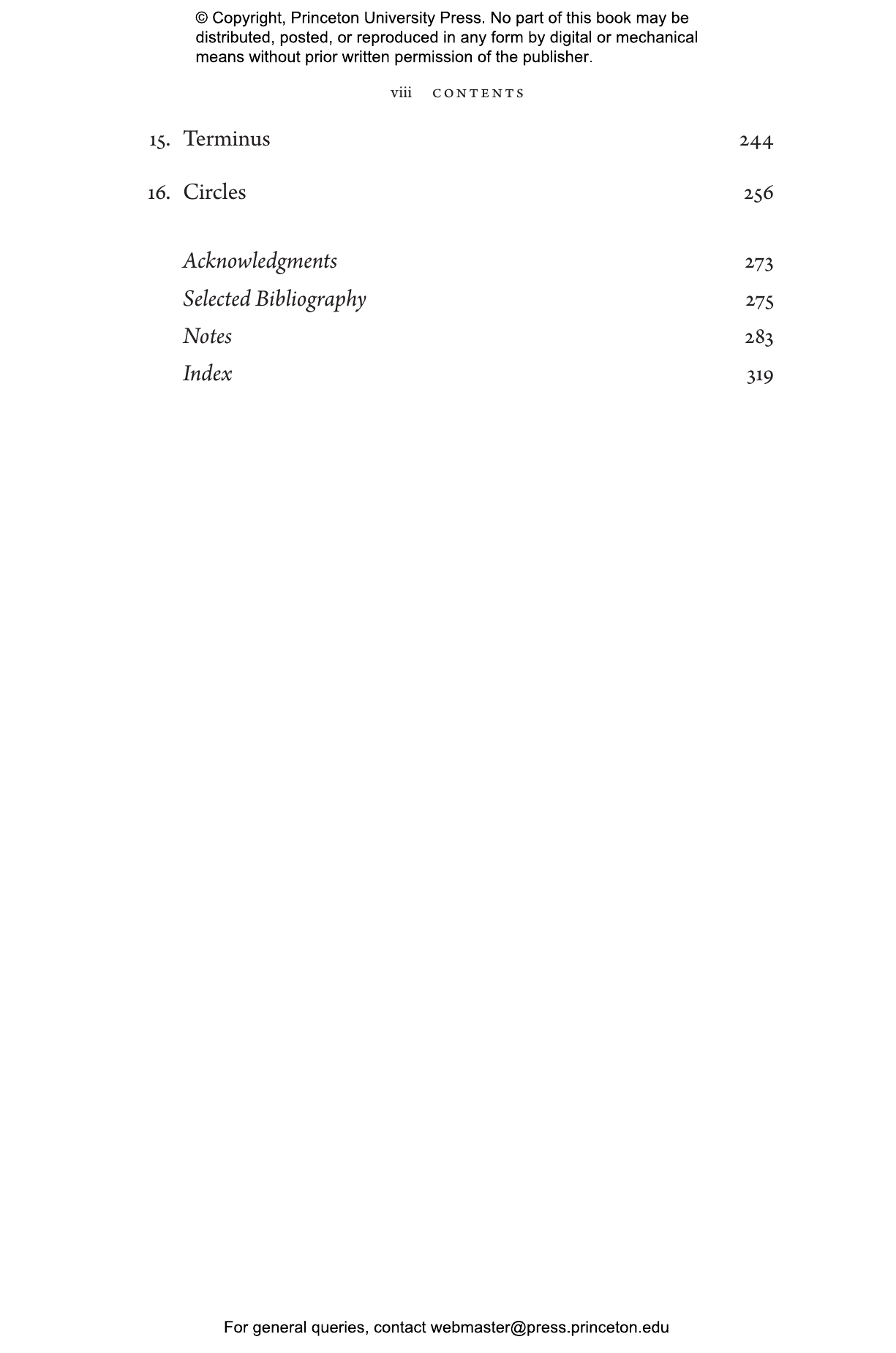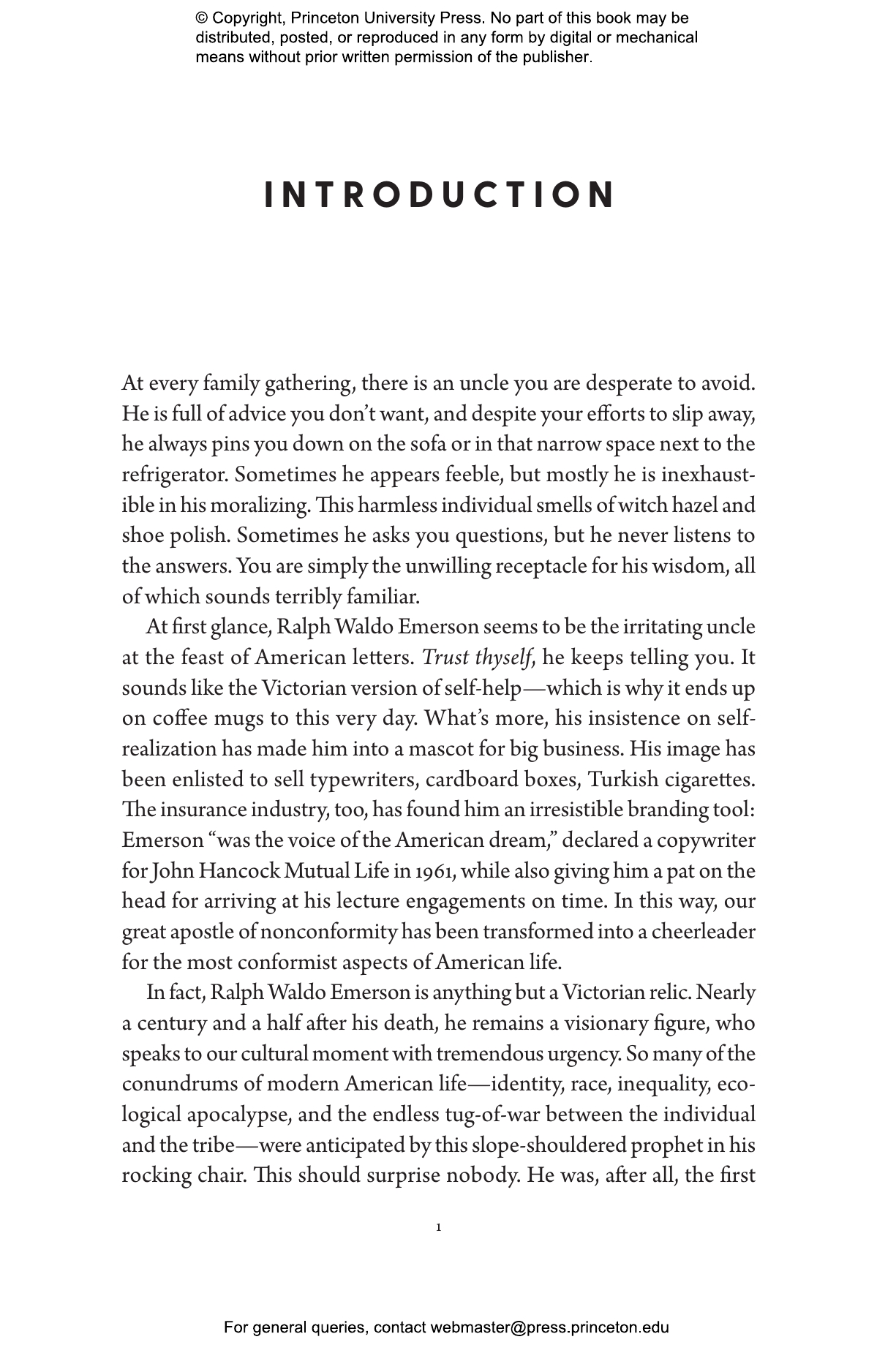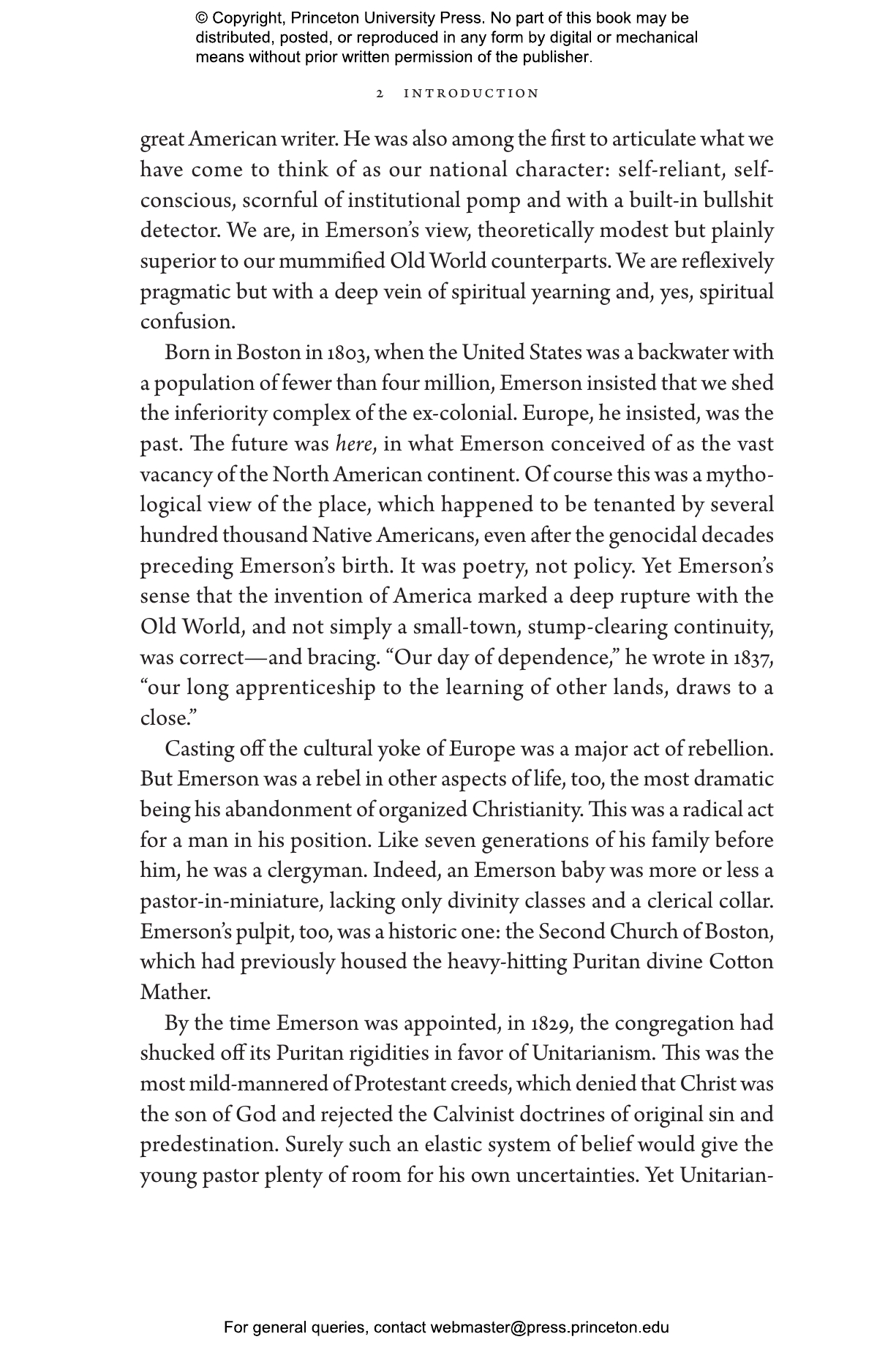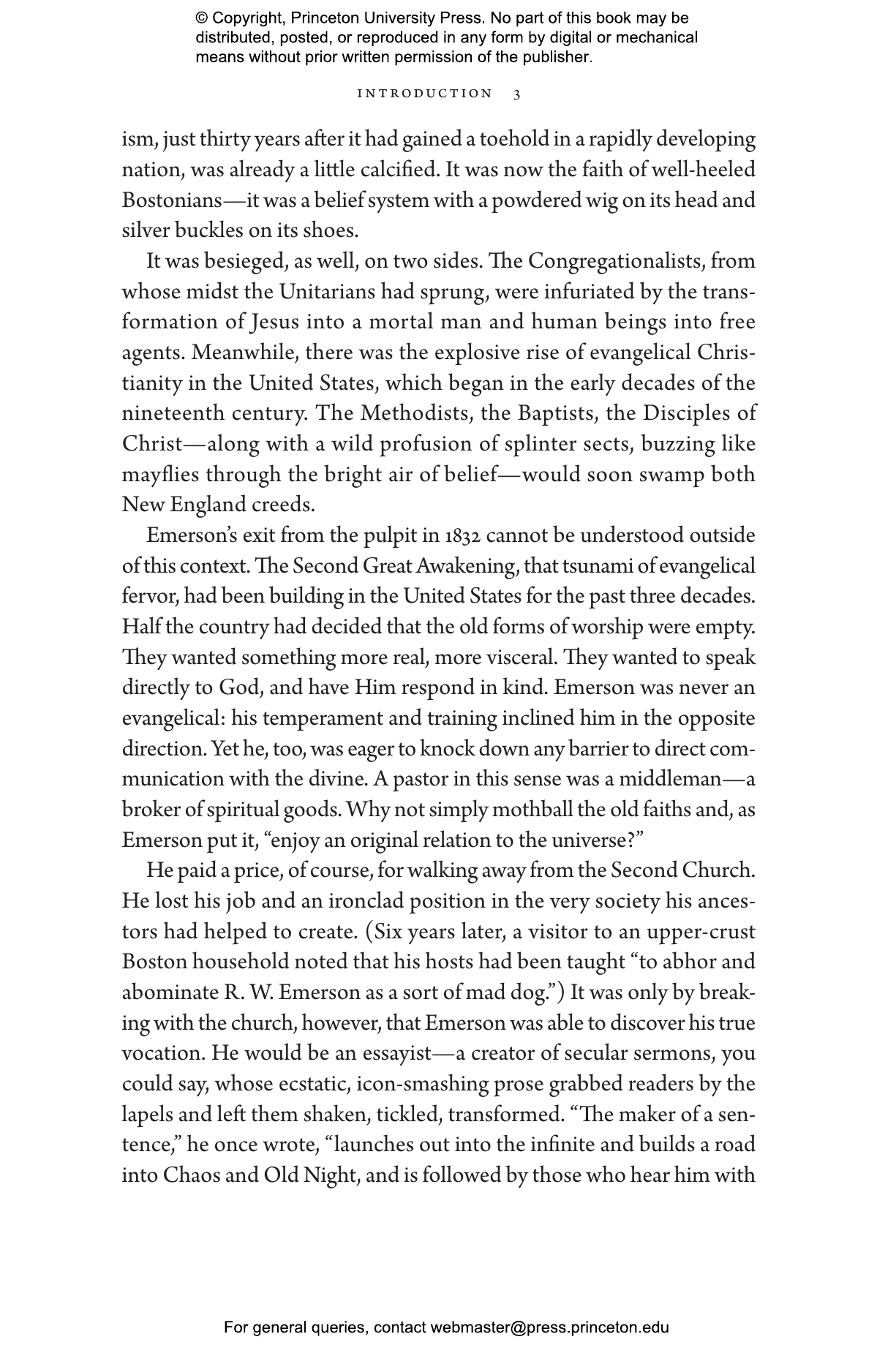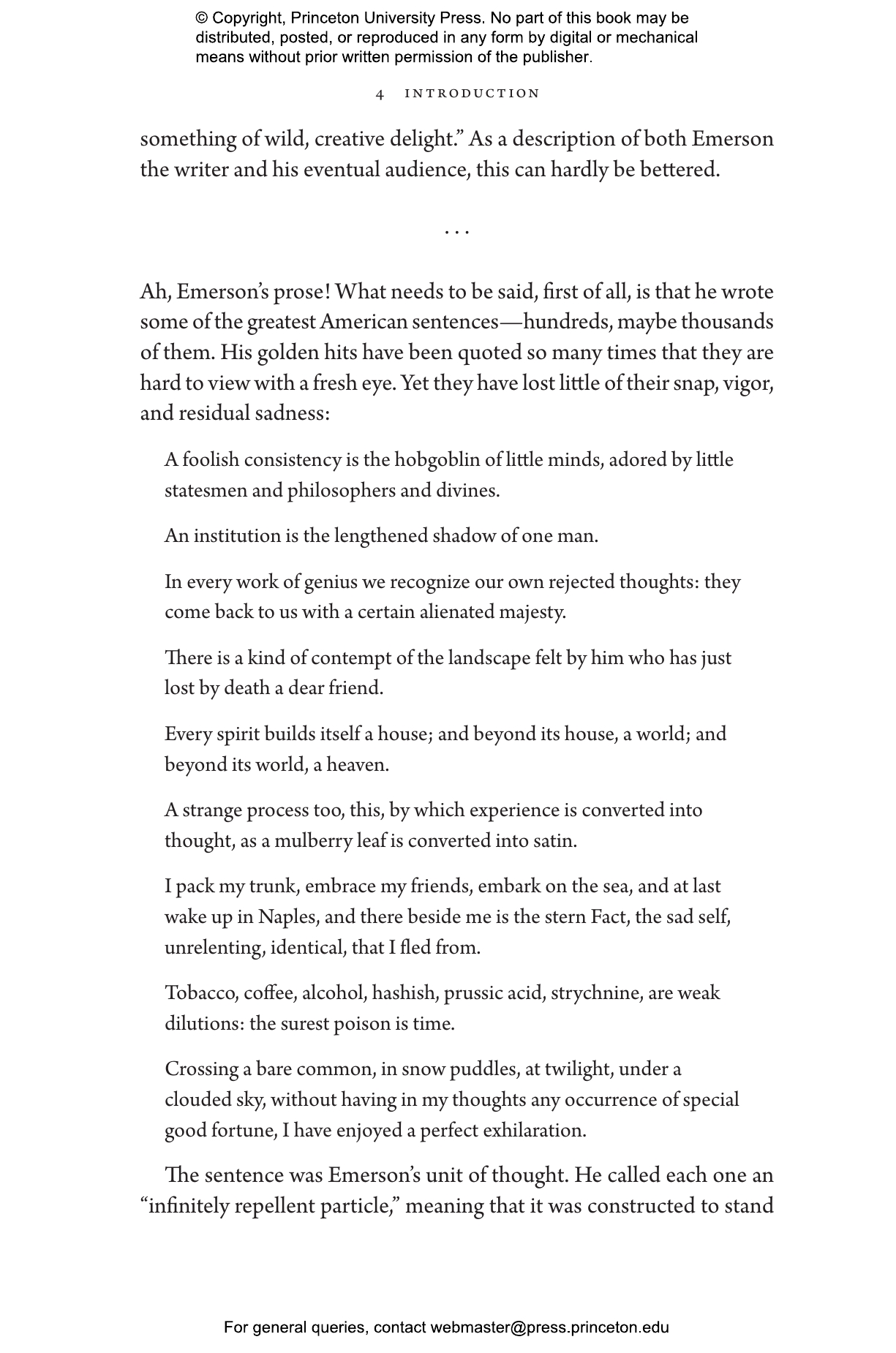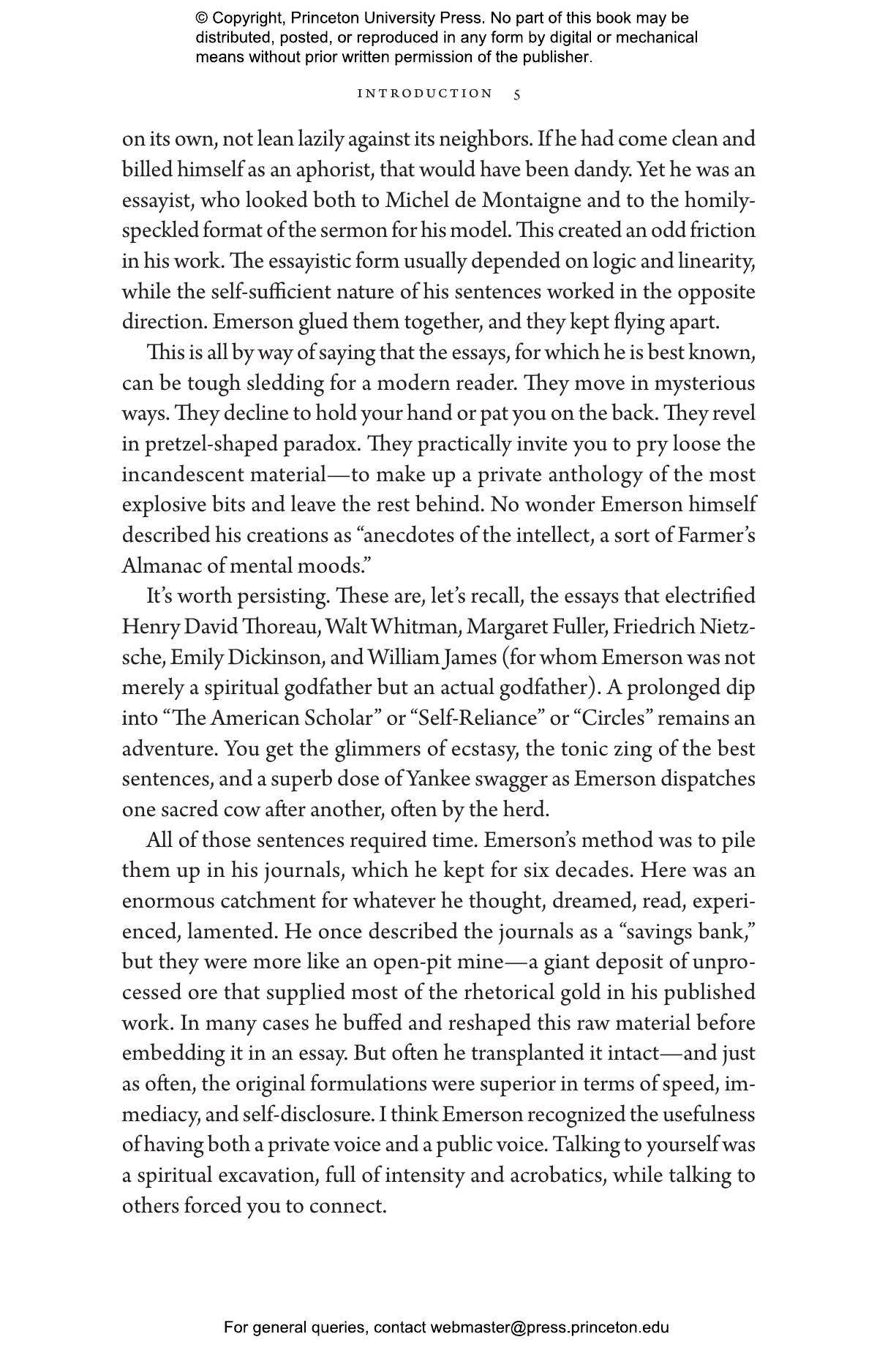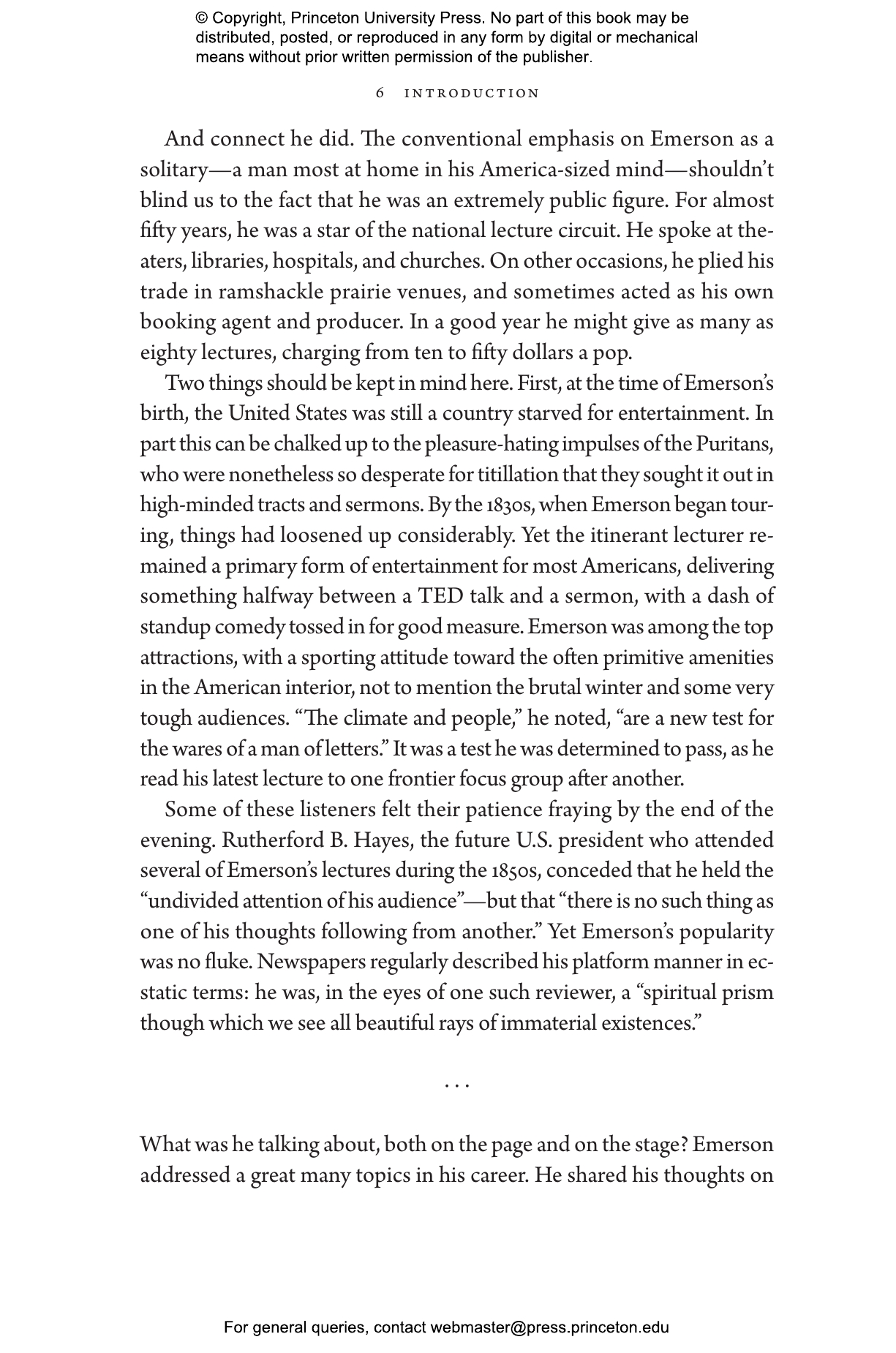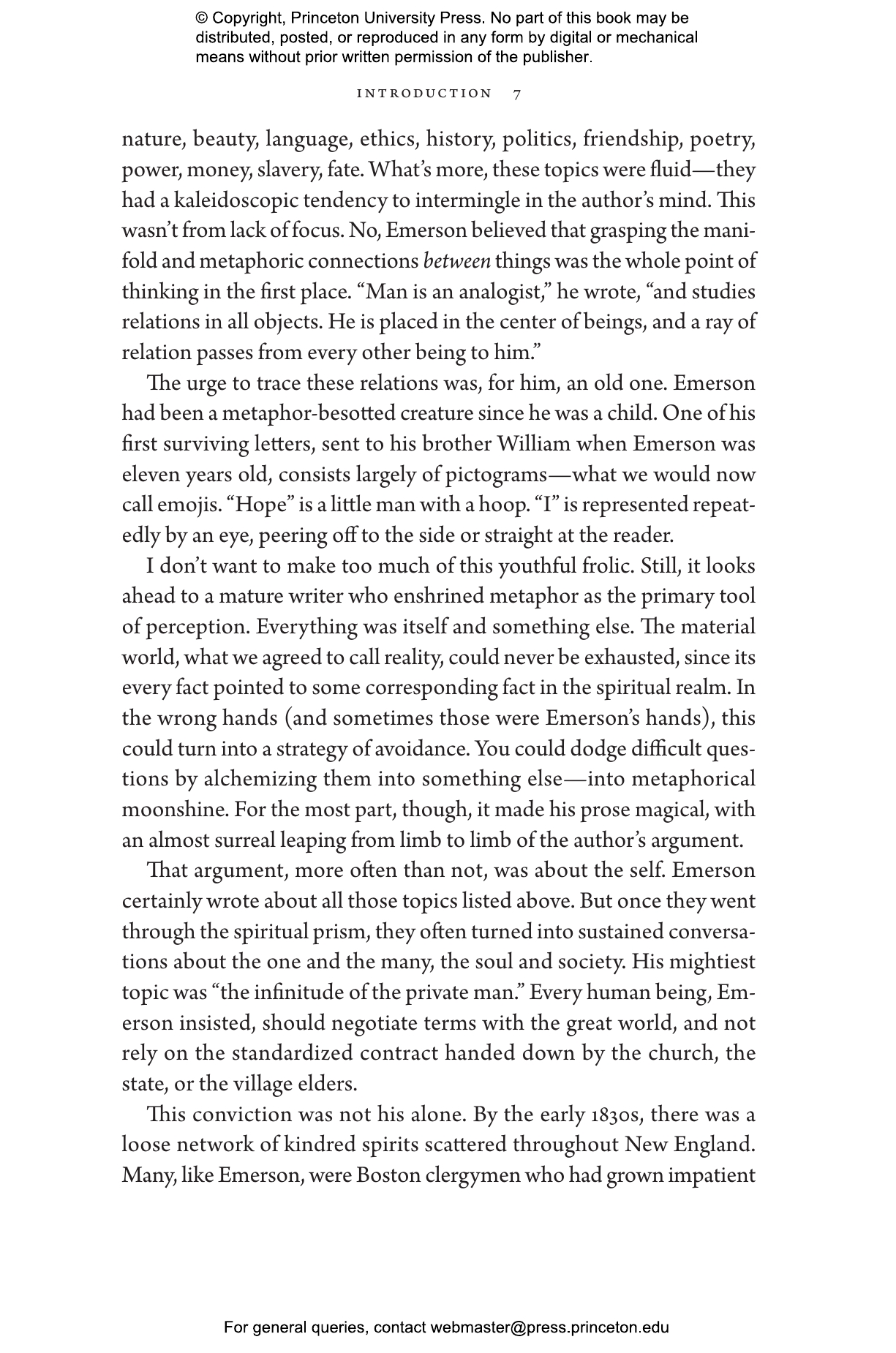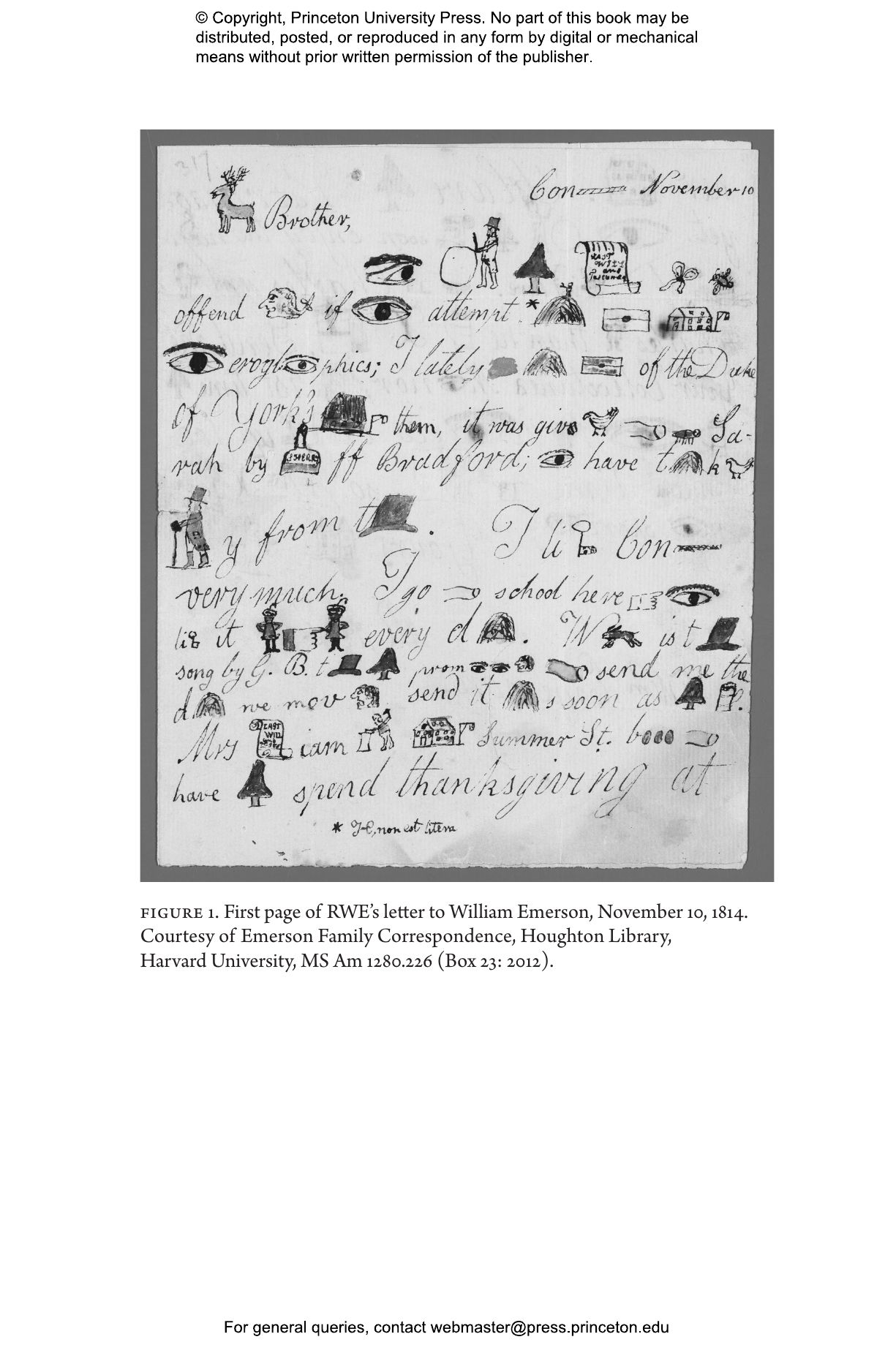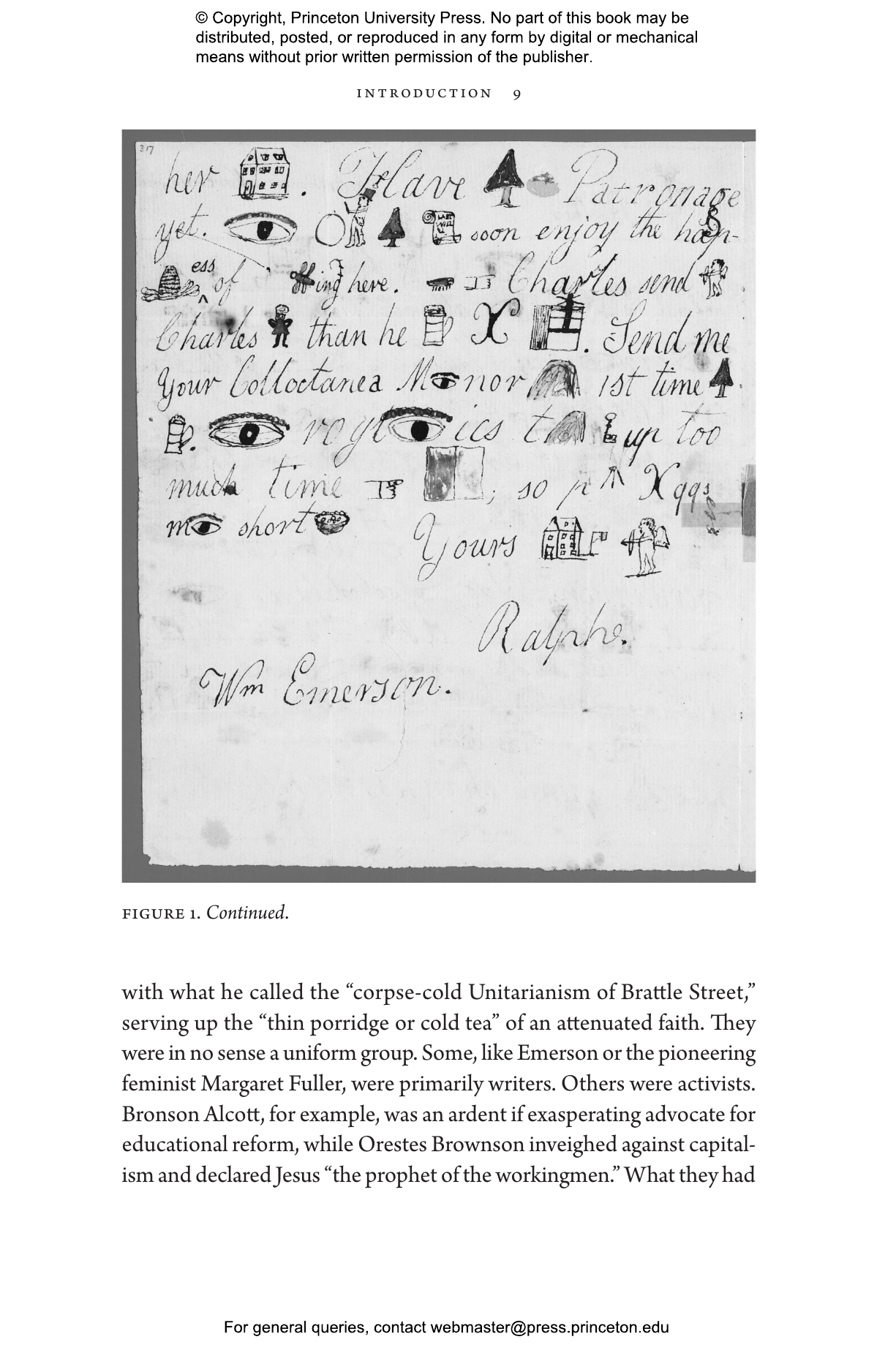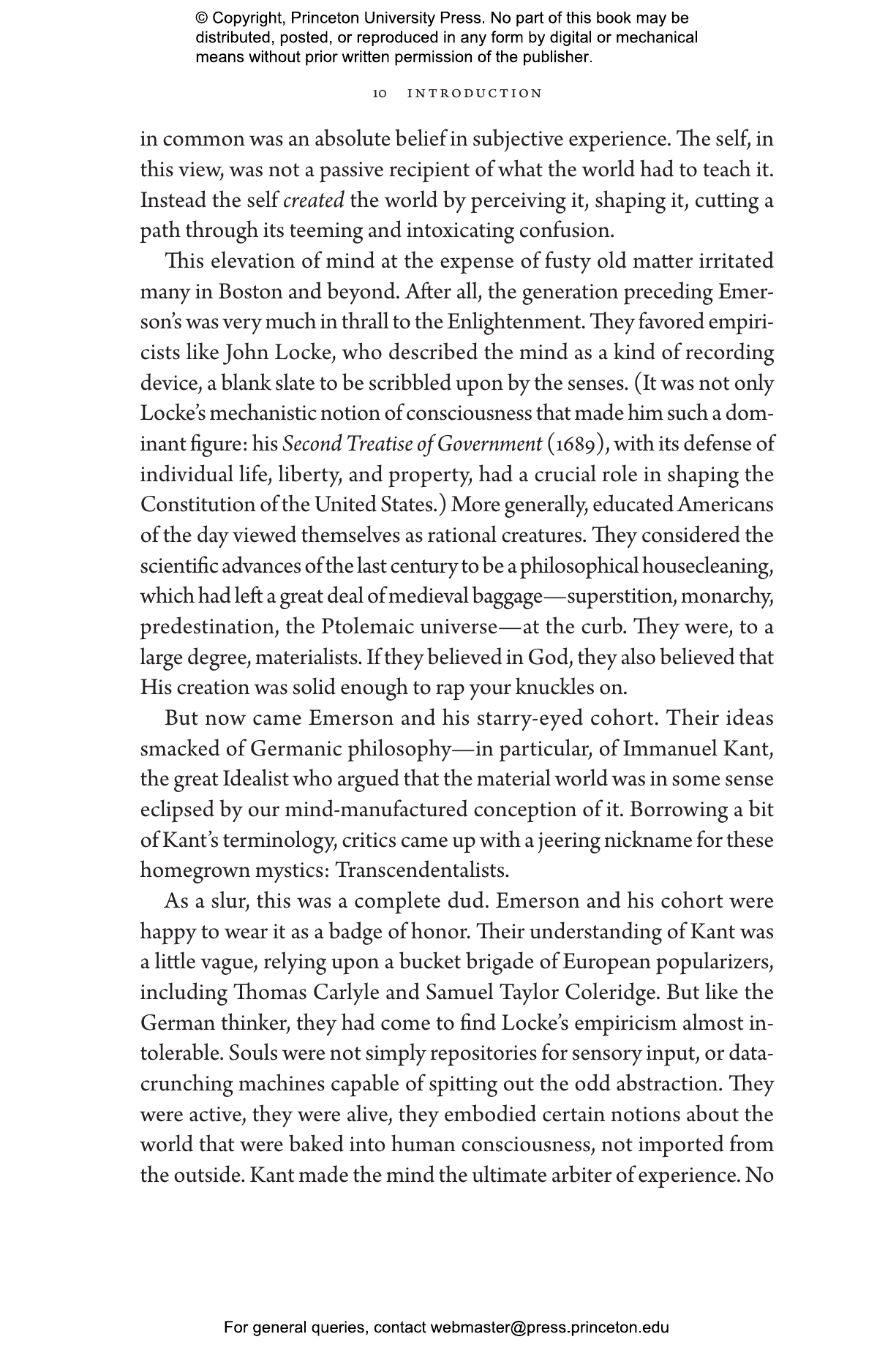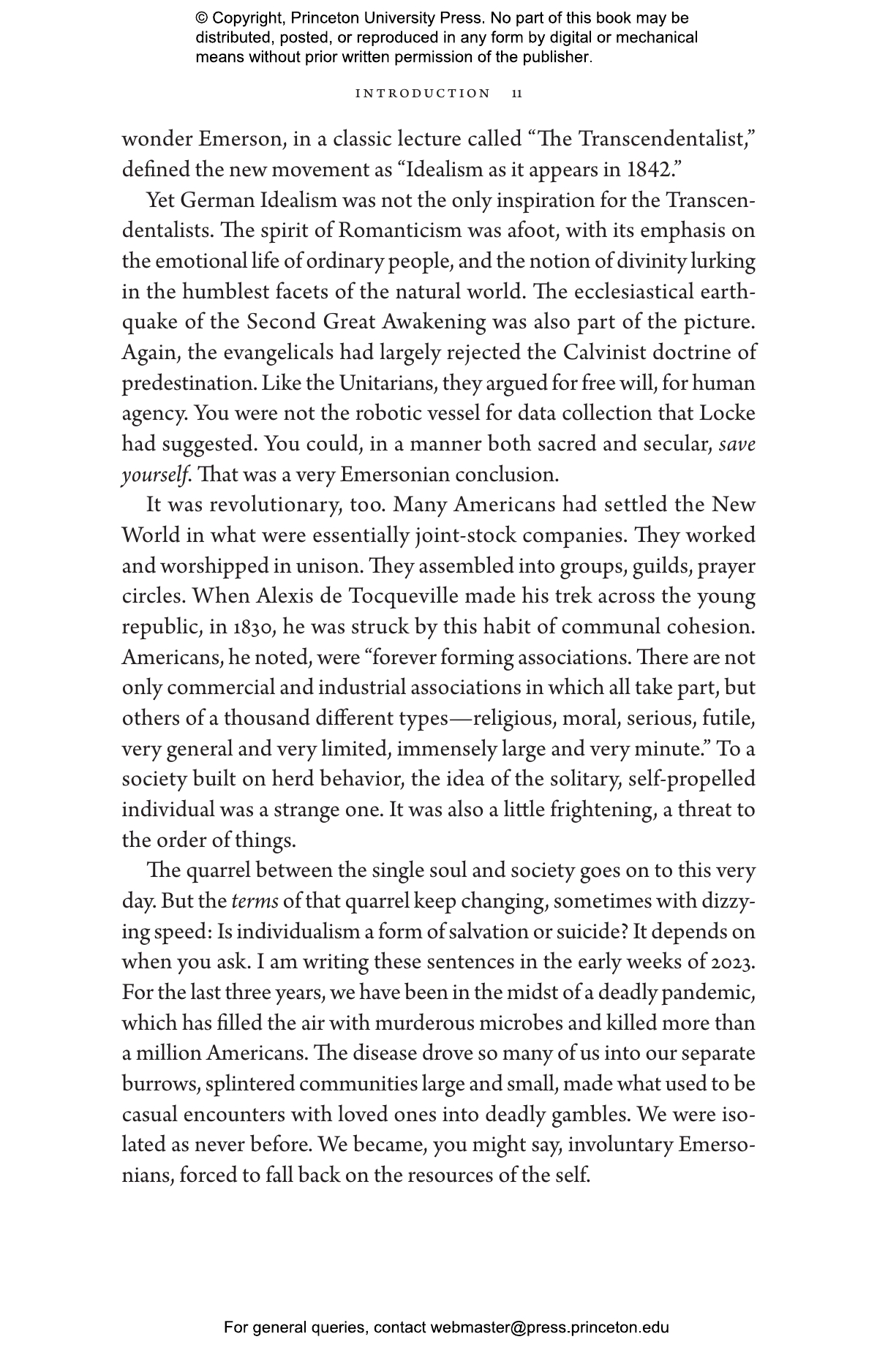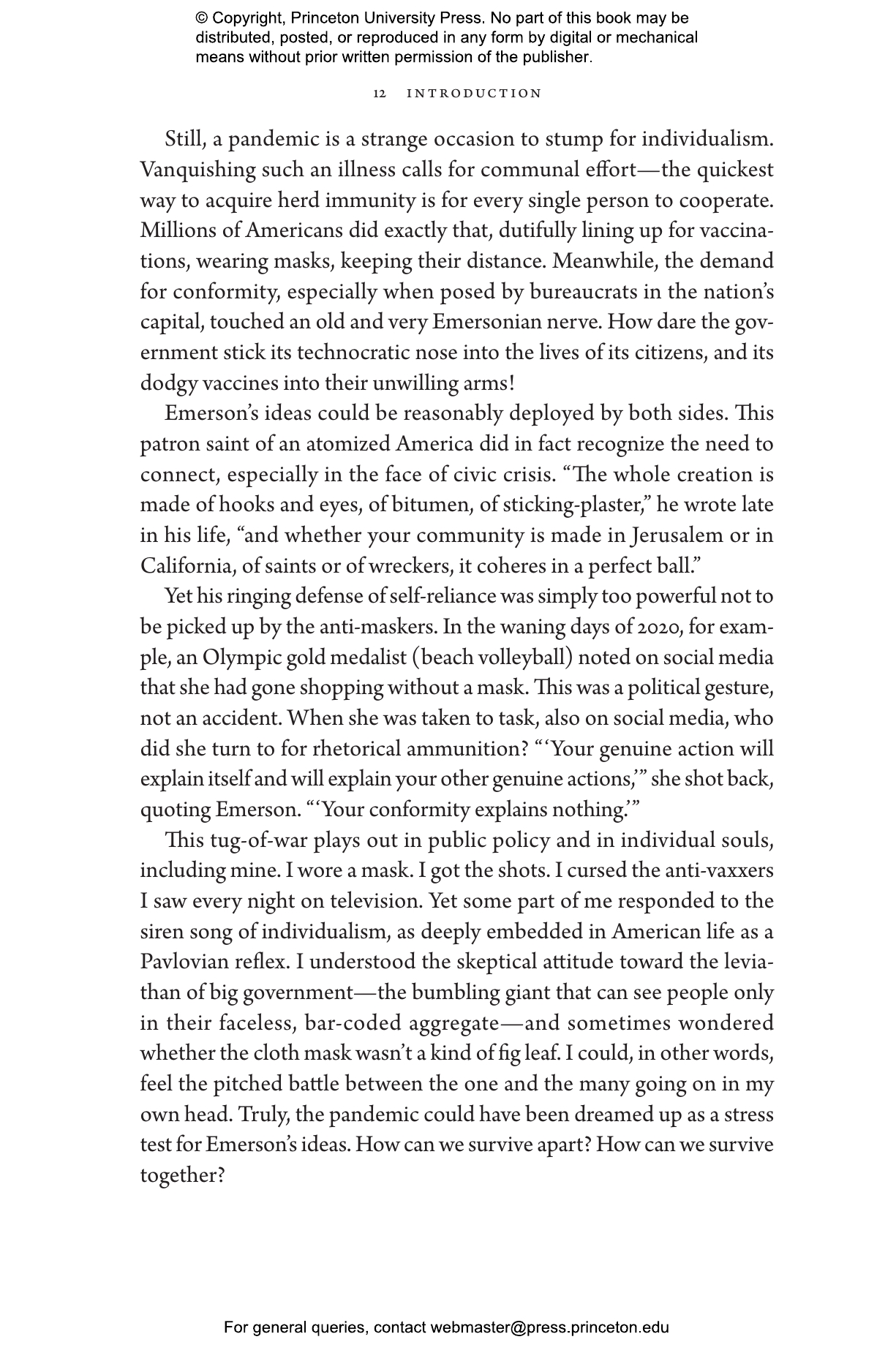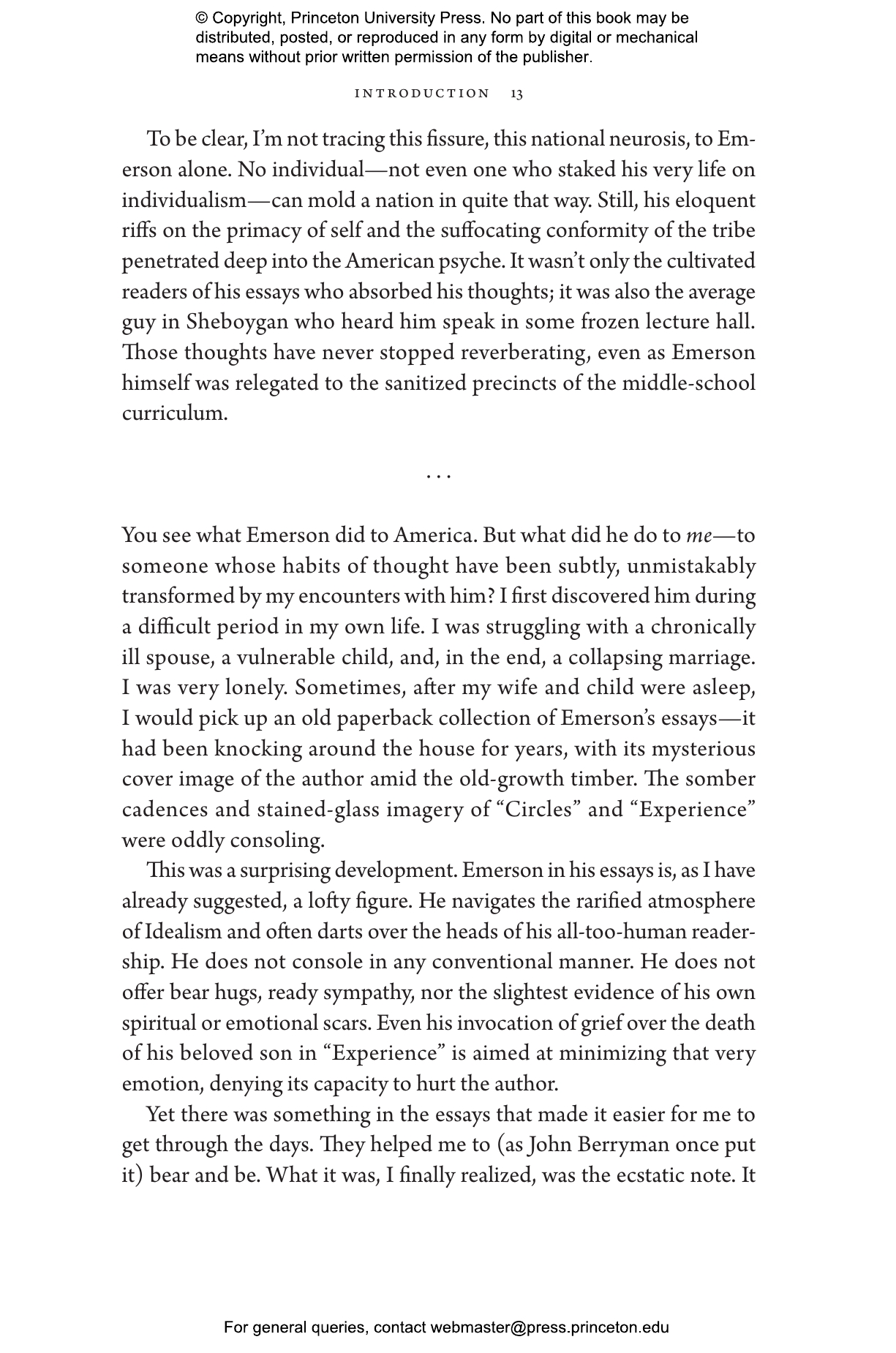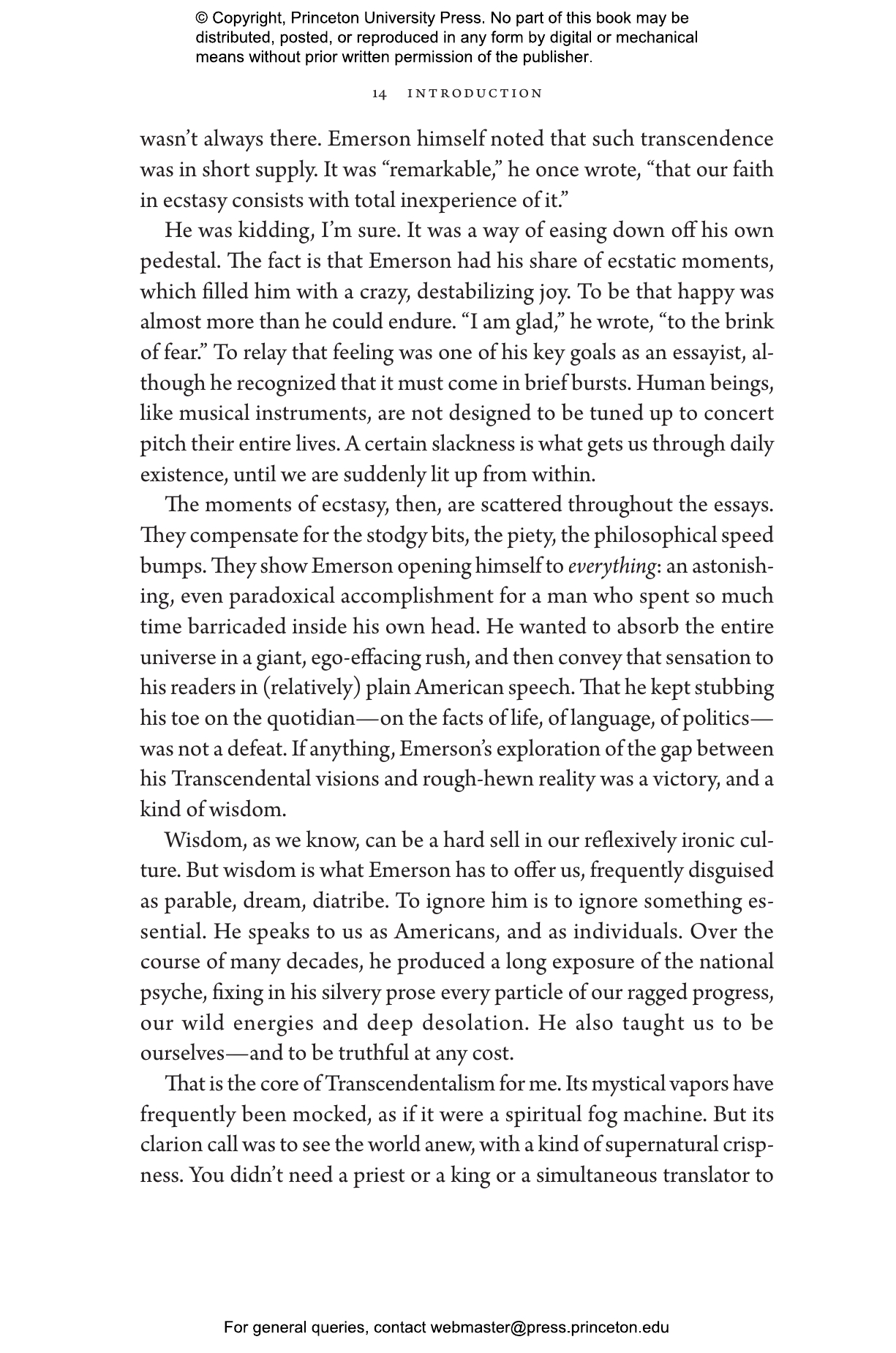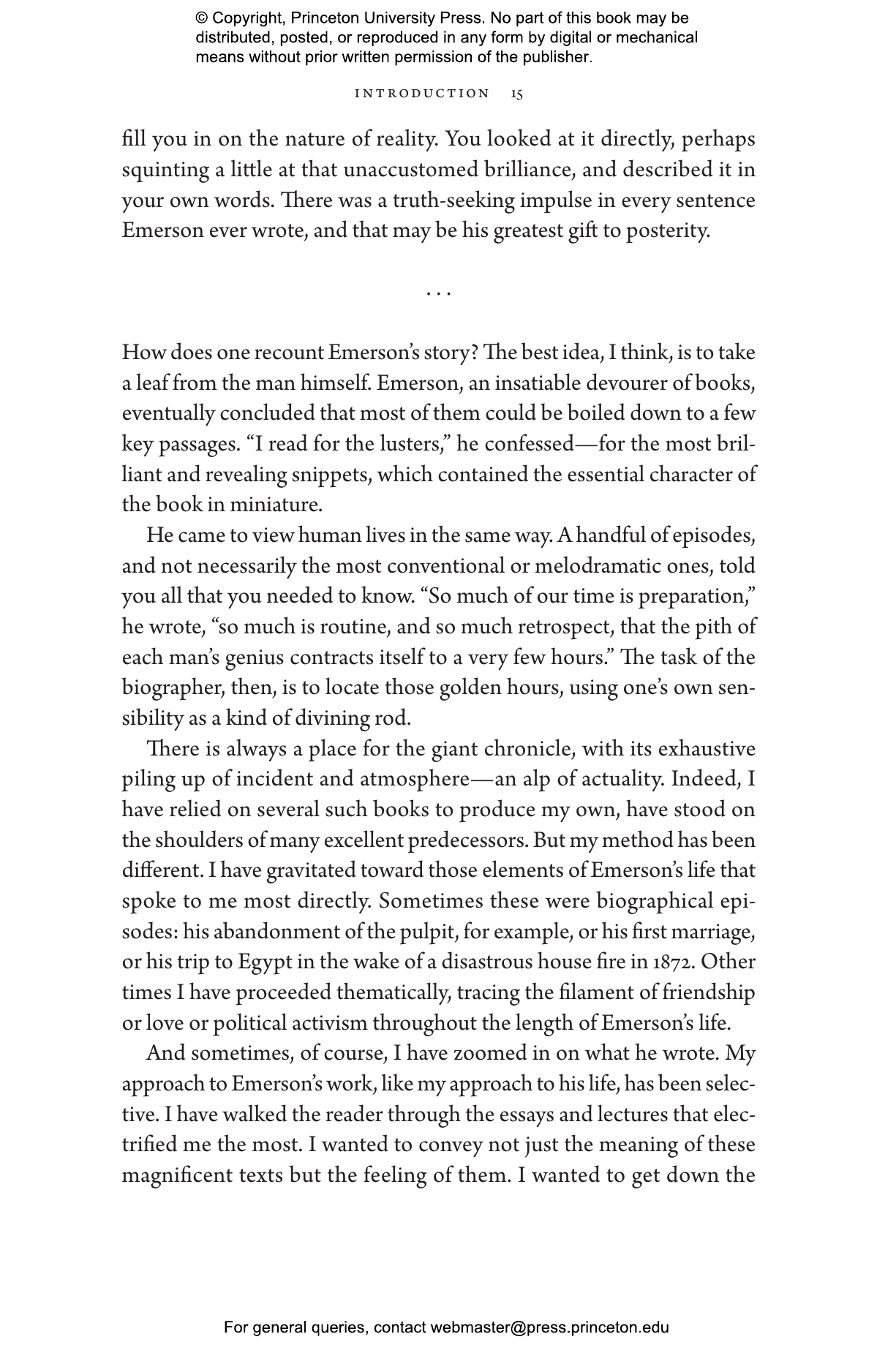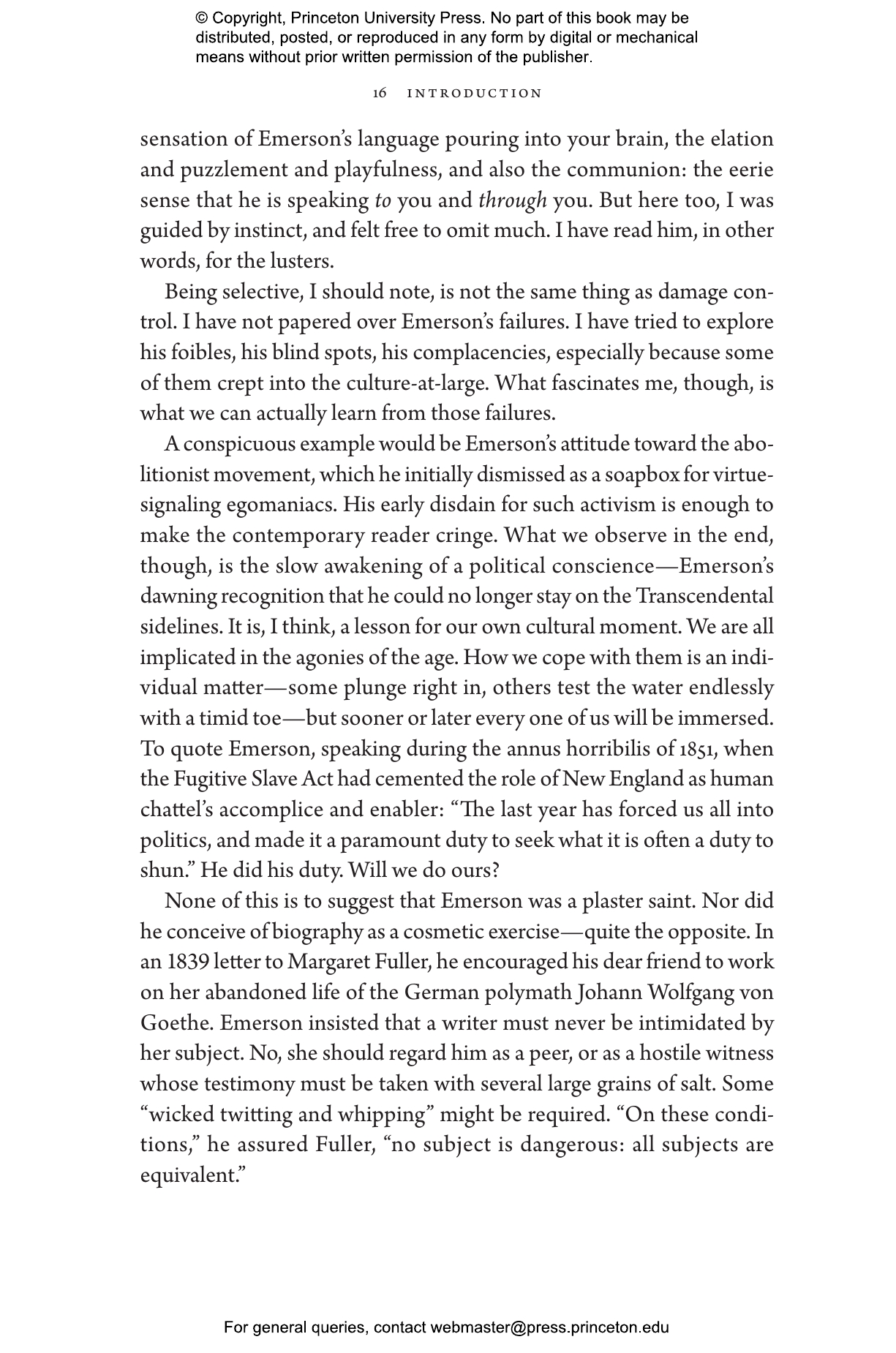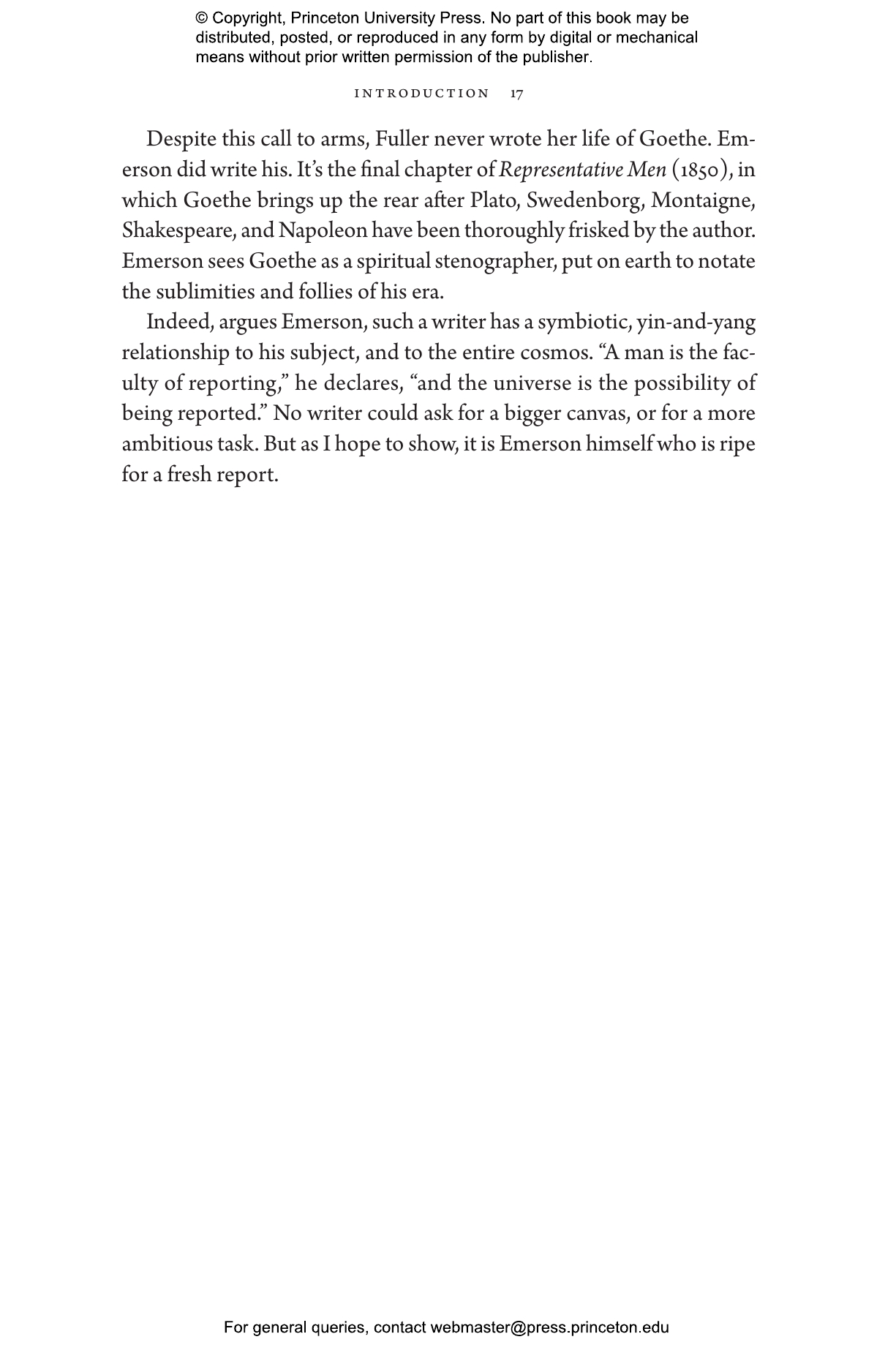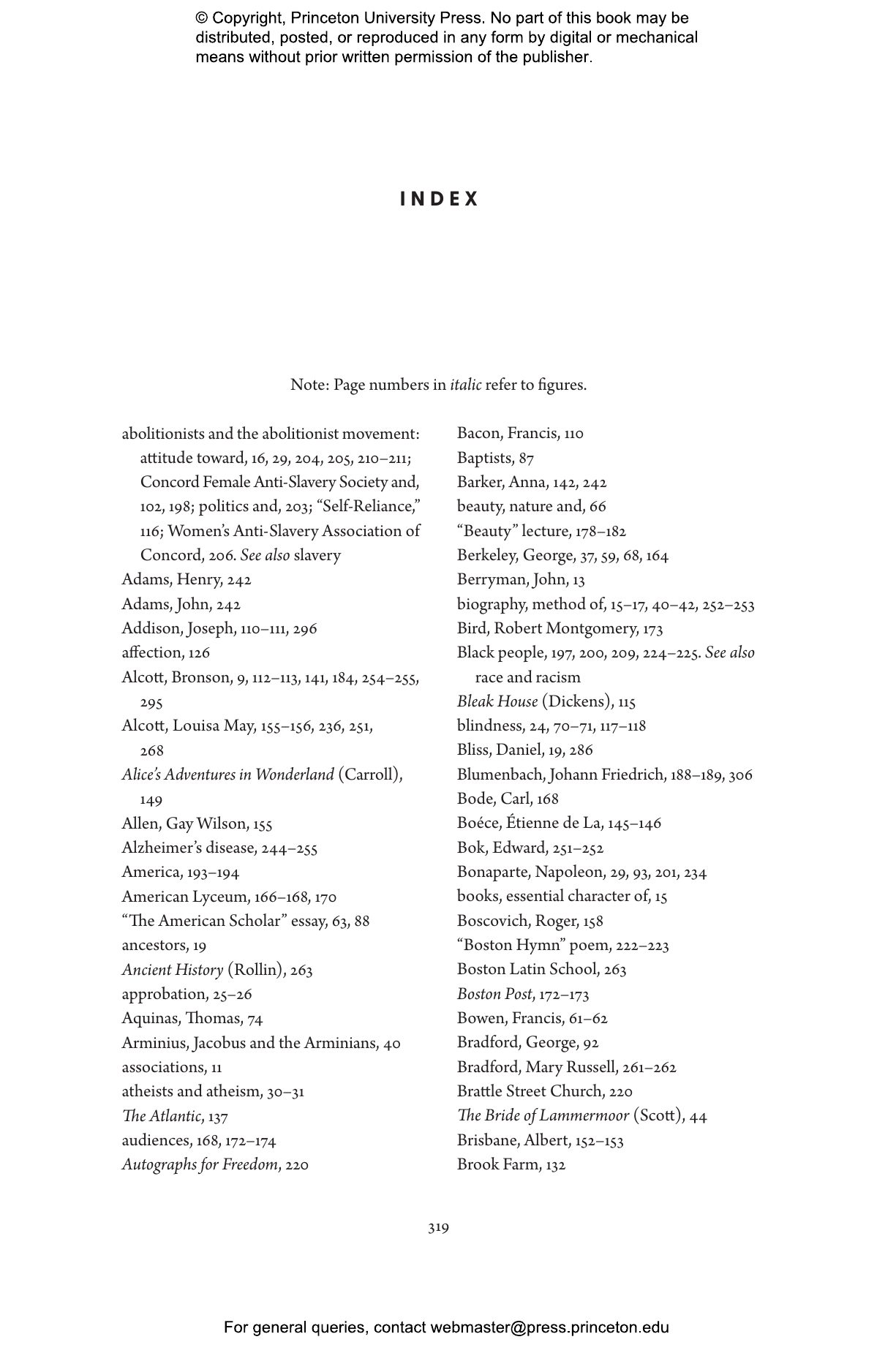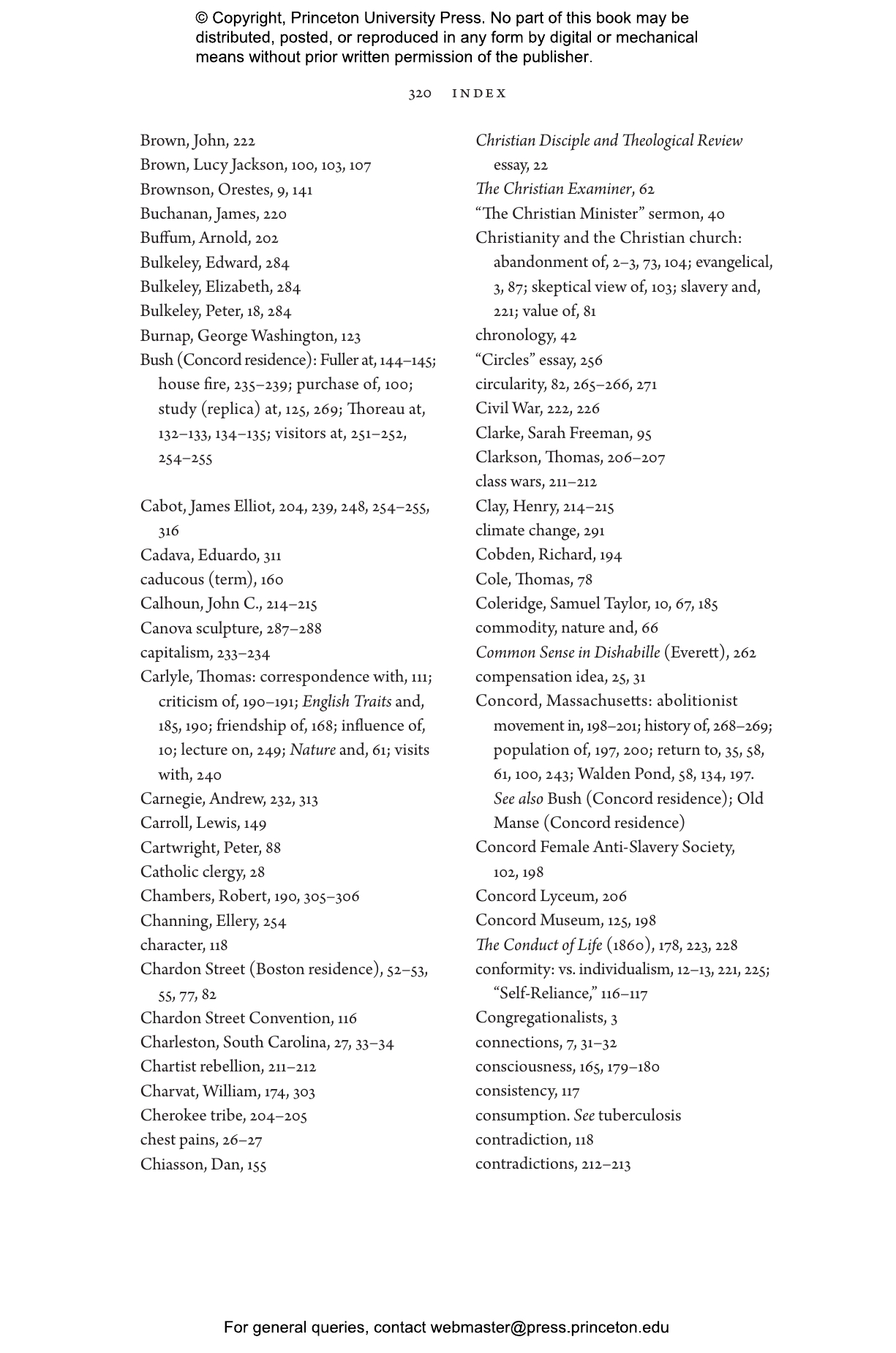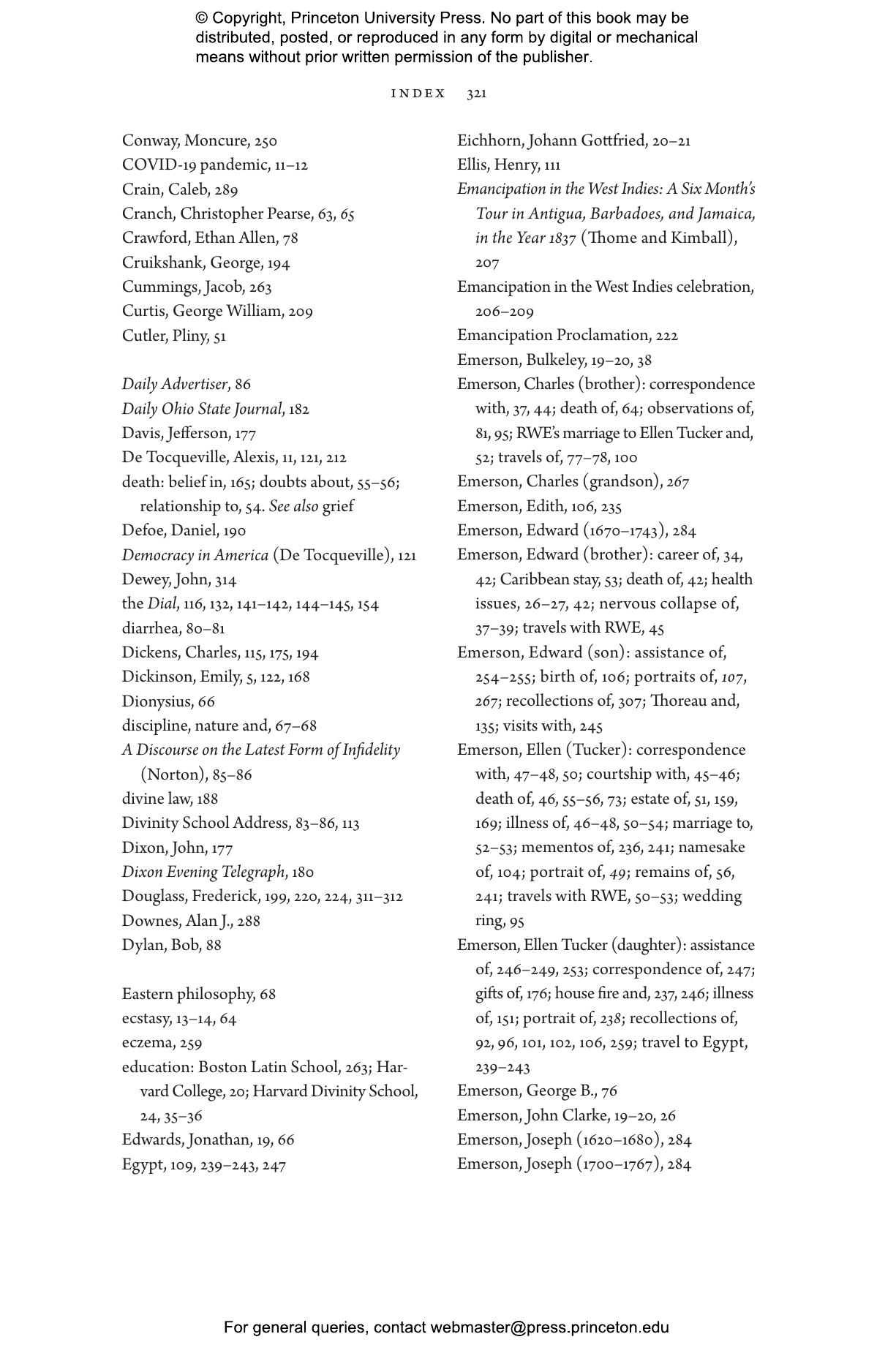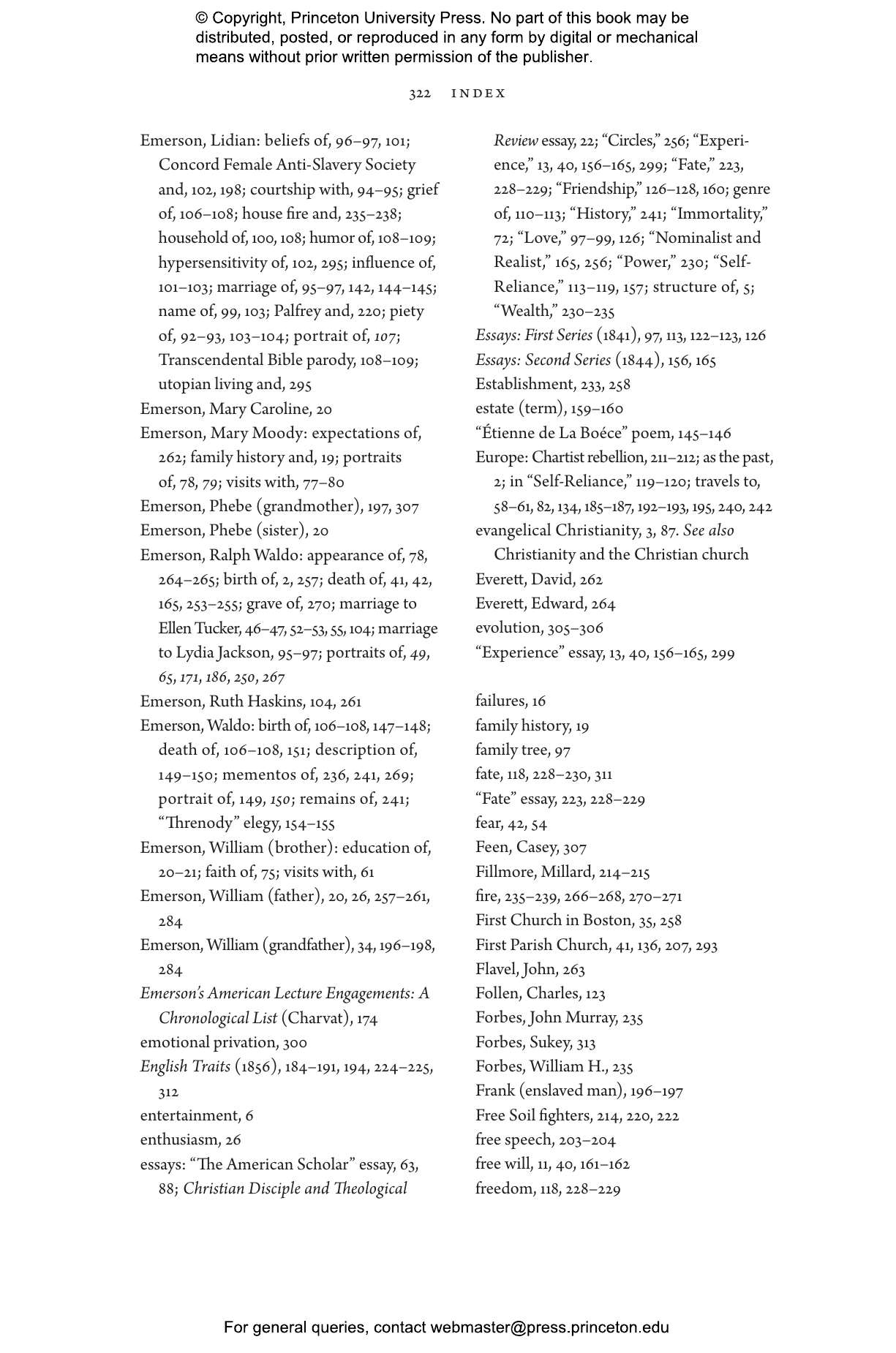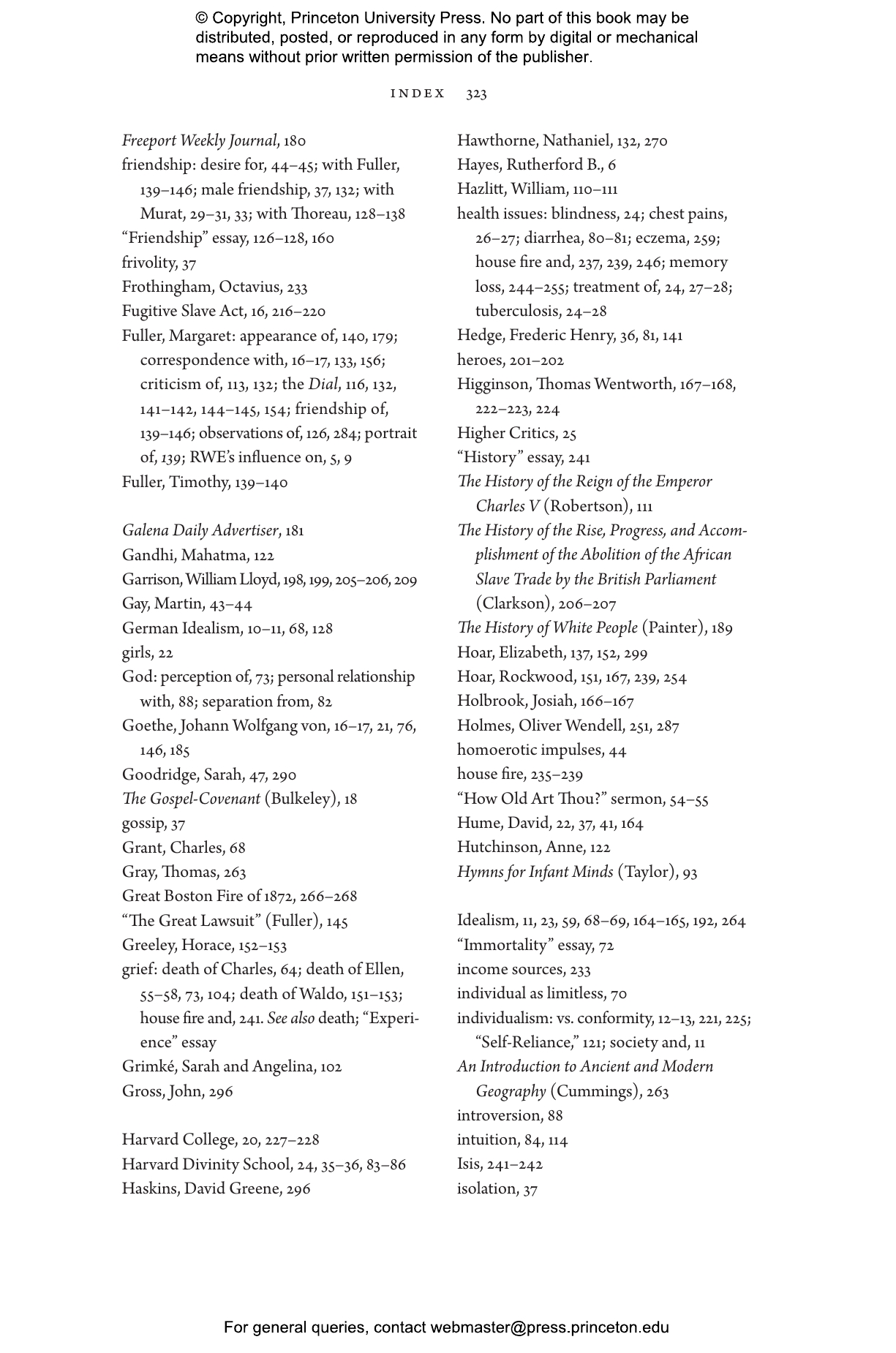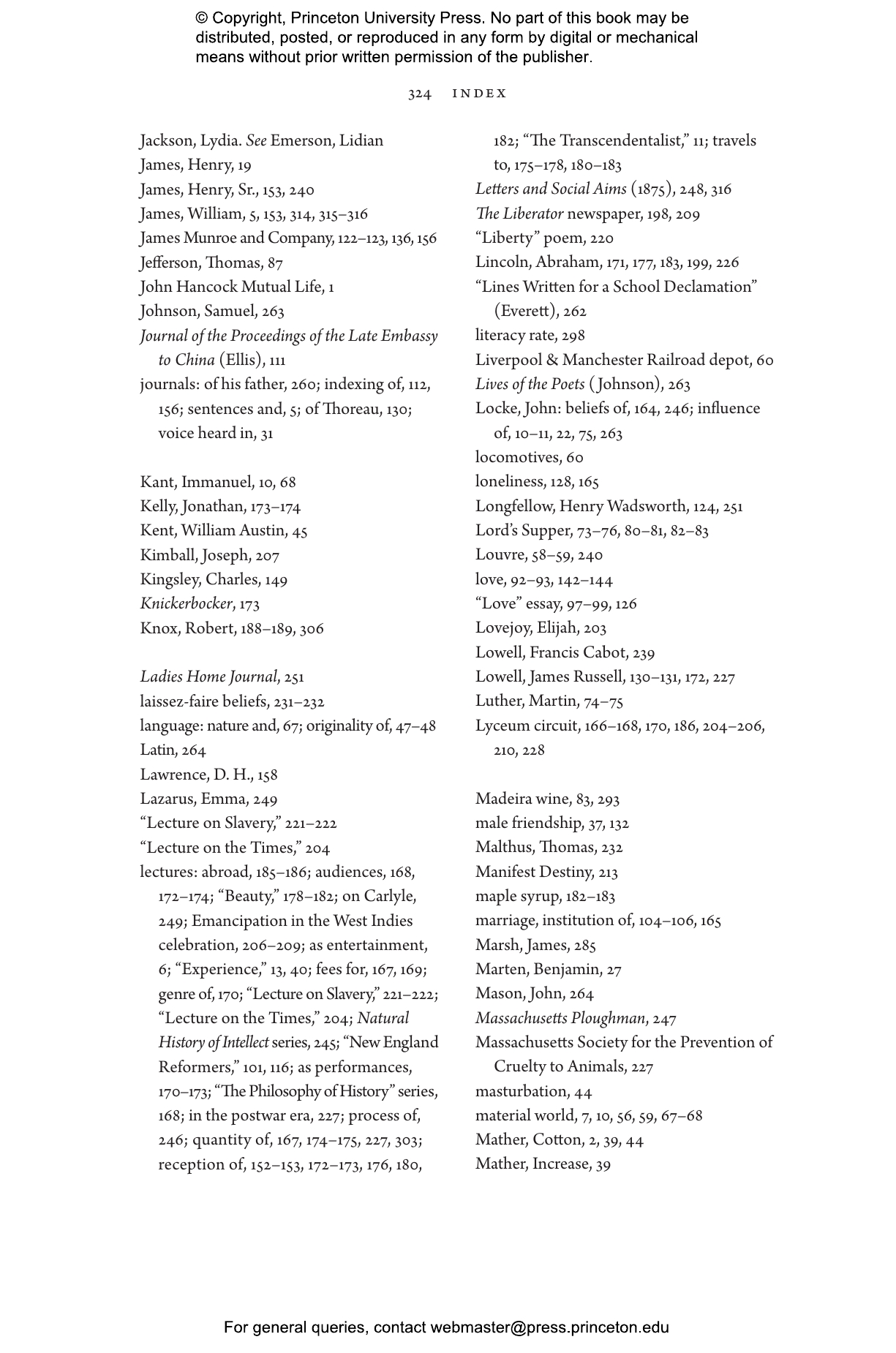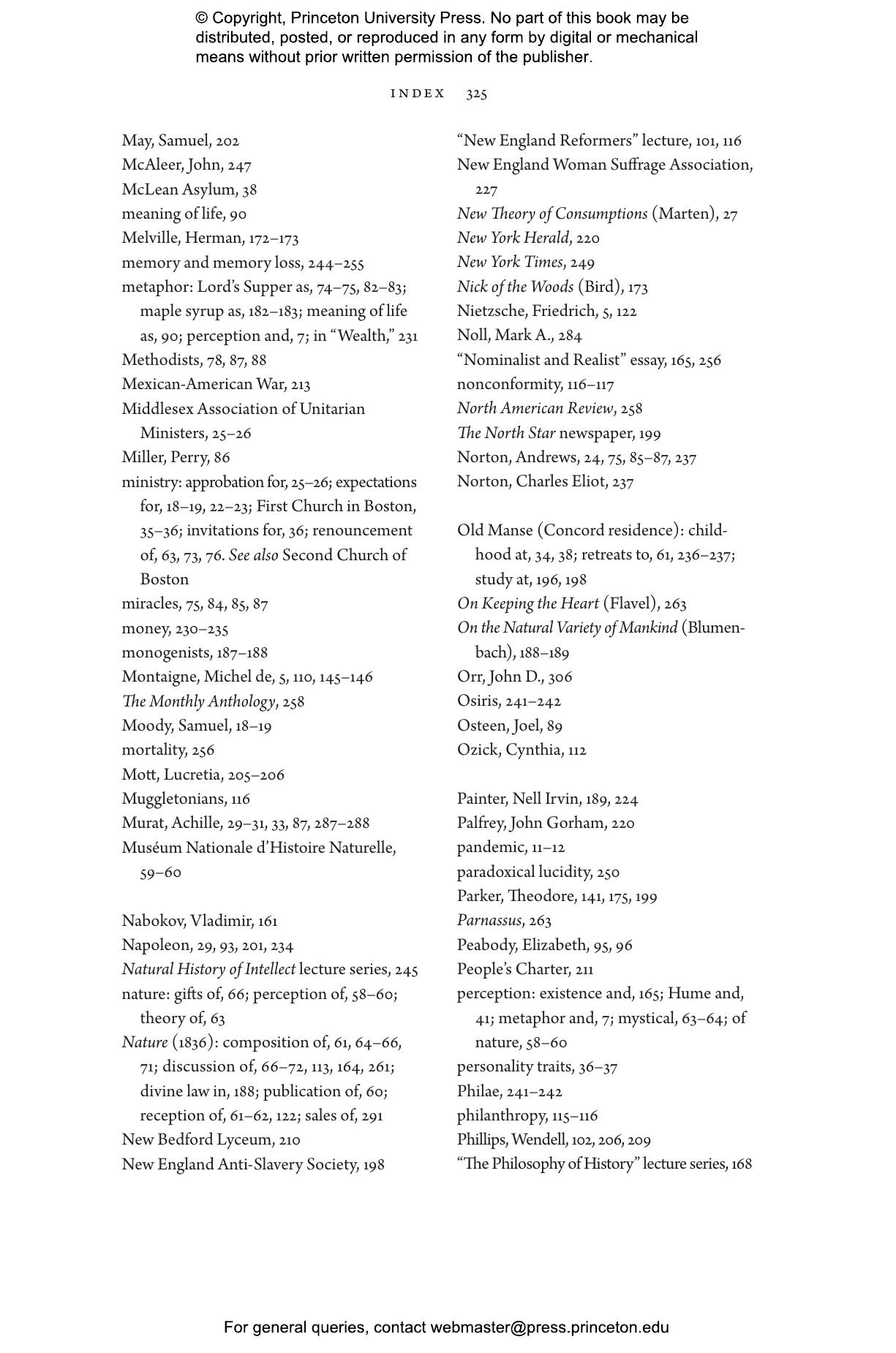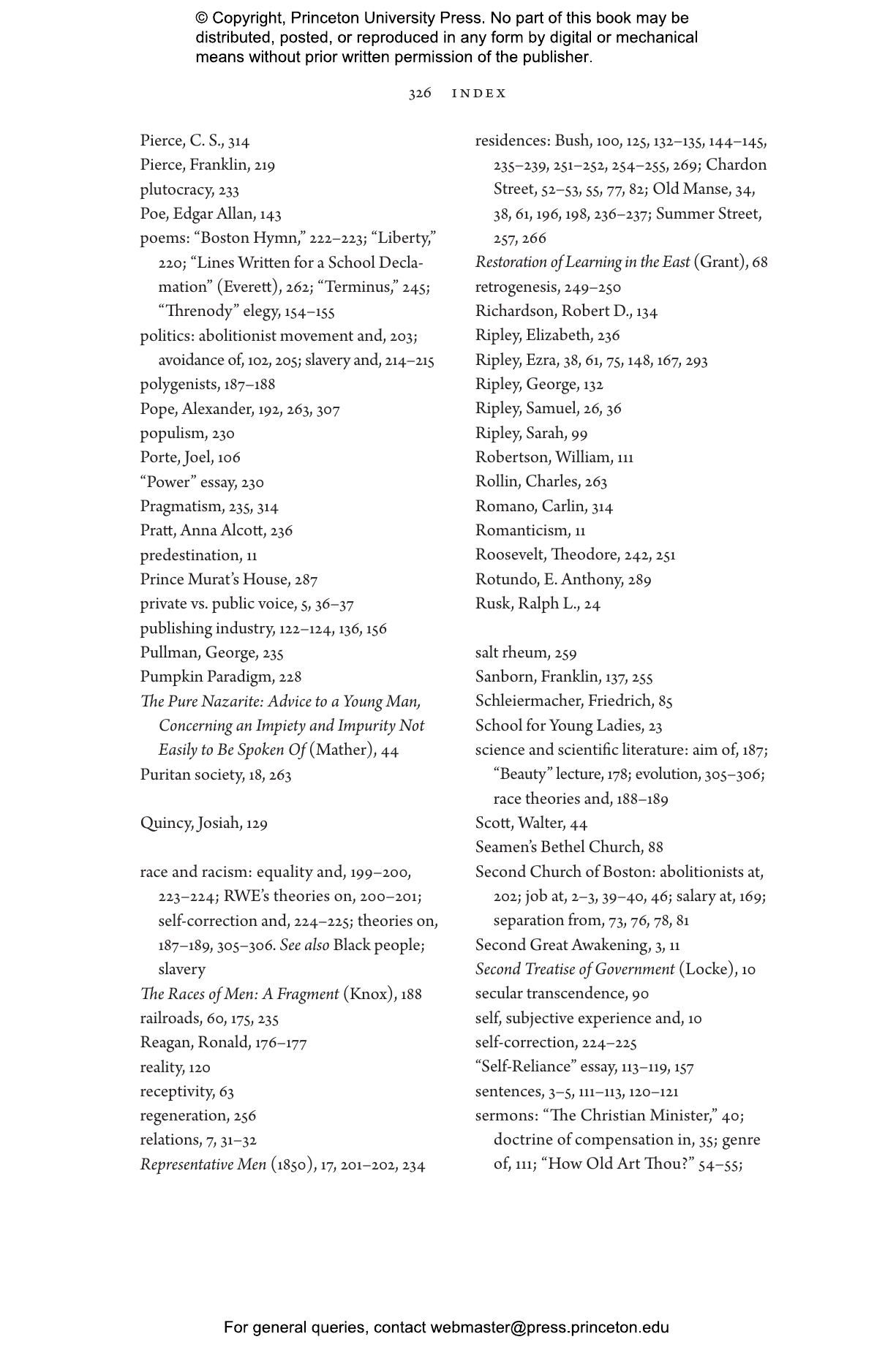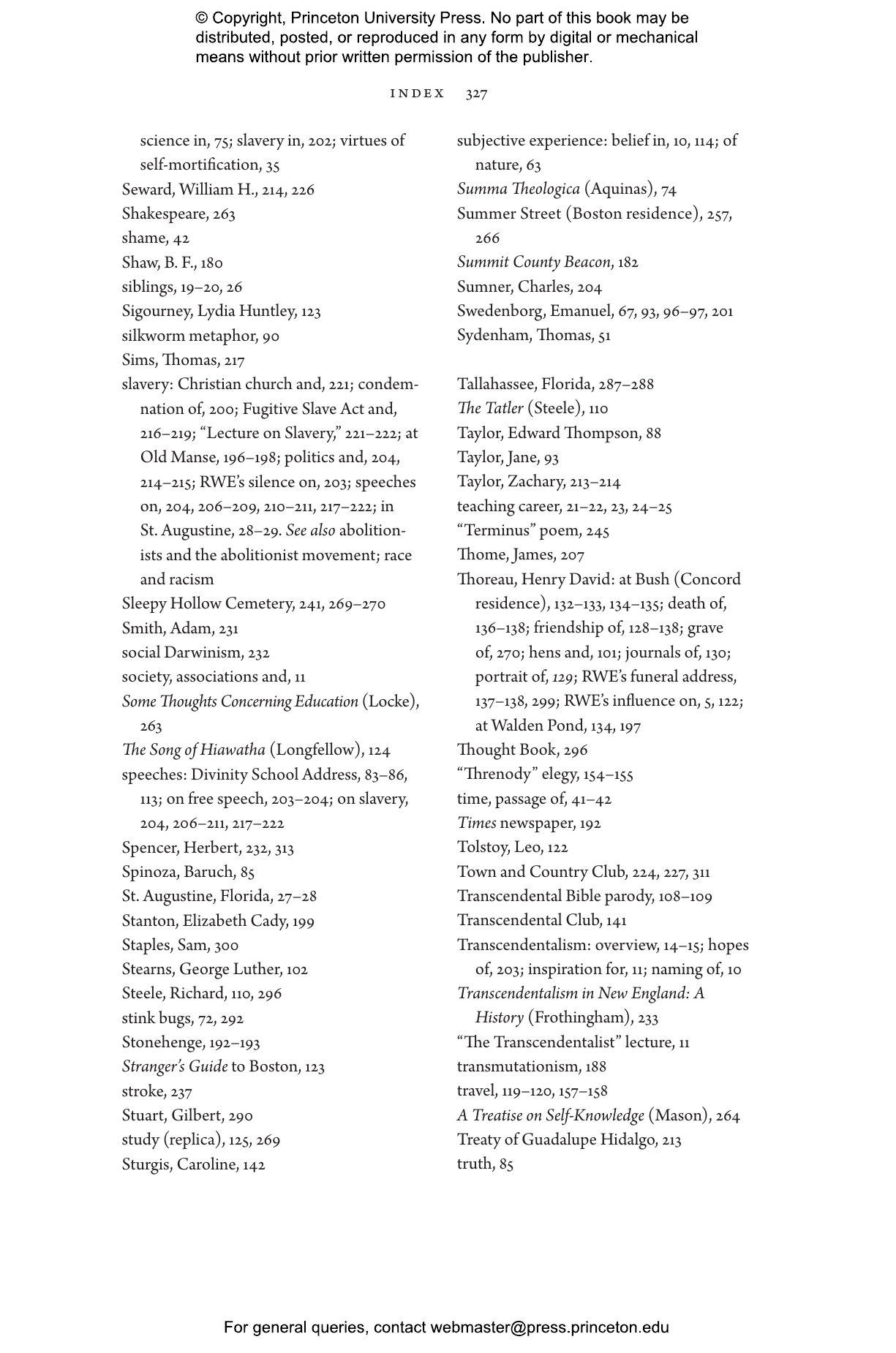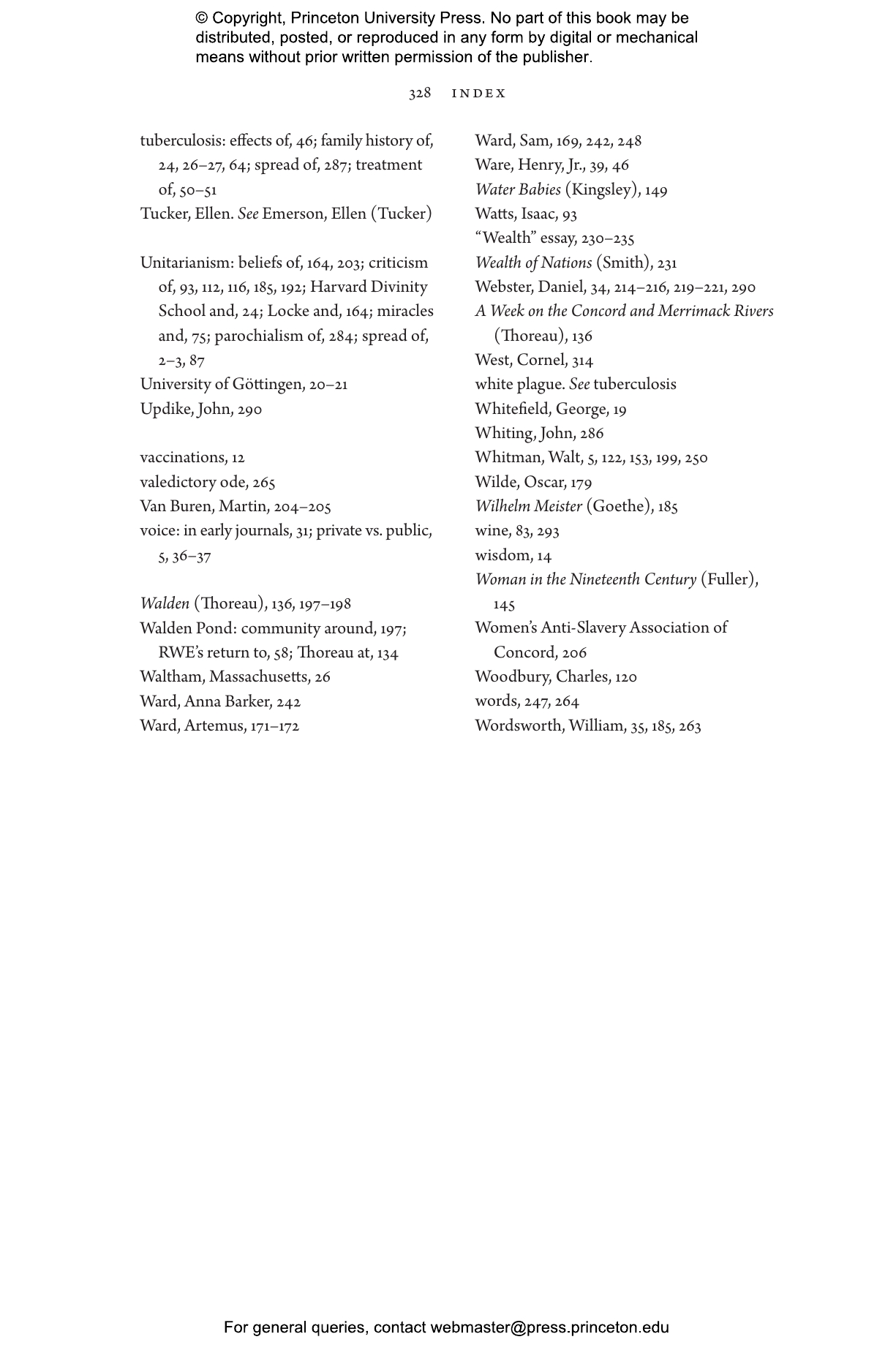More than two centuries after his birth, Ralph Waldo Emerson remains one of the presiding spirits in American culture. Yet his reputation as the starry-eyed prophet of self-reliance has obscured a much more complicated figure who spent a lifetime wrestling with injustice, philosophy, art, desire, and suffering. James Marcus introduces readers to this Emerson, a writer of self-interrogating genius whose visionary flights are always grounded in Yankee shrewdness.
This Emerson is a rebel. He is also a lover, a friend, a husband, and a father. Having declared his great topic to be “the infinitude of the private man,” he is nonetheless an intensely social being who develops Transcendentalism in the company of Henry David Thoreau, Margaret Fuller, Bronson Alcott, and Theodore Parker. And although he resists political activism early on—hoping instead for a revolution in consciousness—the burning issue of slavery ultimately transforms him from cloistered metaphysician to fiery abolitionist.
Drawing on telling episodes from Emerson’s life alongside landmark essays like “Self-Reliance,” “Experience,” and “Circles,” Glad to the Brink of Fear reveals how Emerson shares our preoccupations with fate and freedom, race and inequality, love and grief. It shows, too, how his desire to see the world afresh, rather than accepting the consensus view, is a lesson that never grows old.
Awards and Recognition
- A Washington Post Most Anticipated Release
"Playful and insightful. . . . Marcus’s passion for his subject and his understanding of what makes a successful biography mean this book is delightful for any reader, however much (or little) they previously know about Emerson."—Jessica Ferri, Washington Post
"Marcus’s writing is lively and precise, vigorously colloquial. It is full of knowledge and affection. The voice is distinctive, and Marcus is autobiographically present in some of the book’s best passages. . . . His portrait of Emerson, the man, is finely wrought. . . . If this were a show – a staging of a masterpiece – I would pay good money to see it. Not because it is perfect or unprecedented, but because it is alive and provocative."—Lawrence A. Rosenwald, New York Times Book Review
"An intimate and often moving book, lively with ideas."—Kate Tuttle, Boston Globe
"[Glad to the Brink of Fear] emphasizes the enduring freshness and abiding relevance of Emerson’s writing. . . . Though many other biographers have covered similar territory, Marcus’ treatment provides a distinct and memorable sense of revelation. A lively, intimate, absorbing account of the sage of Concord."—Kirkus Reviews, starred review
"A distinctive biography of philosopher Ralph Waldo Emerson that homes in on ‘those elements of Emerson’s life that spoke to me most directly.’ Fortunately, Marcus’s instincts are a good guide to the shifting sands of Emerson’s life and thought. . . . The result is a discerning take on an essential 19th-century American thinker."—Publishers Weekly
"[A] psychologically astute portrait. . . . Marcus’ deeply personal interpretation illuminates an iconic prophet who discovered that seeking the meaning of life turns out to be the meaning of life."—Booklist
"This is a fascinating addition to the splendid series of which it’s a part."—Alan Dent, The Penniless Press
"James Marcus’ new biography, Glad to the Brink of Fear: A Portrait of Ralph Waldo Emerson, gives the best picture yet of Emerson—this country’s key thinker—whose writings try to answer, more than any others, the question of what it means to be an American. . . . [Marcus is] eloquent and moving in his effort to get as close as he can to Emerson the human being."—David Mikics, Tablet
"The book, in a nutshell: generous and eloquent. . . . I believe I have learned and thought more — about Emerson, and Emerson and us — while reading Marcus’ book than any other."—Peter Behrens, Arts Fuse
"Deeply intimate. . . . Instead of shrouding himself behind the biographer’s veil of objectivity, Marcus pulls back the curtain, punctuating his narrative with unusually candid admissions about what Emerson’s life illuminates about his own. In doing so, he gently jostles our assumptions about the purpose of the biography and invites us to reexamine what we might be looking for when we plumb the lives of others in turbulent times."—Nicole Penn, American Purpose
"A very sympathetic well researched biography. . .which gives us new insights into this mid-nineteenth century figure’s life and the development of his consciousness through his essays and lectures."—Coral Ann Howells, New Directions
"A lively, personal take on this endlessly fascinating figure, comprising sixteen brief chapters, each addressing a different facet of Emerson’s life and work, each striving to show the larger-than-life figure as deeply human."—Andrew Epstein, Times Literary Supplement
"A cross between literary criticism and biography (with perhaps a little cultural history thrown in), James Marcus’ new book about Transcendentalist writer/philosopher Ralph Waldo Emerson is fascinating. . . . Glad to the Brink of Fear is a welcome addition to the oeuvre of hefty tomes—this book is hefty in thought, not in page number—about Emerson and his world."—Julie Dobrow, Tufts Now
"If Emerson challenges readers to ‘reverse-engineer’ an essay like ‘Self-Reliance,’ Marcus has one-upped him by reverse-engineering Emerson's life itself. This is not a comprehensive, play-by-play biography but a lively consideration of watershed moments and motifs in Emerson’s life. . . . [Marcus channels] the kind of arresting, informal, and thought-provoking formulations that Emerson deployed in his best essays."—Choice Reviews
“Of all of Emerson’s biographers, James Marcus is the first to make the man and his thought come alive in the present. His Emerson is a marvel—a skeptic and an apostle, a creature of flawed feelings and noble ideals, a lover, a mourner, a wit, and a visionary. How lucky we are to encounter him through Marcus’s wonderfully exact and affable prose.”—Merve Emre, Wesleyan University, contributing writer at The New Yorker
“Modern readers of Emerson are sometimes plagued by the question of relevance. Why wrestle with a frock-coated philosopher who stumbled through the world two centuries ago, when today the polar caps are melting and mining magnates are looking at the Moon? With Glad to the Brink of Fear, the issue of timing is finally moot. In these brisk, beautiful chapters, James Marcus explores the Transcendentalist life that was Emerson’s—and offers a rich and textured way to contemplate meaning in the life that is yours.”—Robert Sullivan, author of The Thoreau You Don’t Know
“Glad to the Brink of Fear is a stirring, elegant, and probing journey through the life and mind of one of our nation’s most influential thinkers. Emerson comes alive in these pages, with all his moods, idiosyncrasies, and brilliance. The reader will come to know Emerson, but just as profoundly, Marcus teaches us how to read Emerson, a philosopher whose explorations of self, nation, knowledge, and belief remain relevant today.”—Imani Perry, author of South to America: A Journey below the Mason-Dixon to Understand the Soul of a Nation
“Glad to the Brink of Fear is joyful, humane, complex, thoughtful, moving, funny, and personal, all while staying true to a contemporary reading of Transcendentalism. This is a tremendous and relevant book that has all the variation and unpredictability of the essay as practiced by Ralph Waldo Emerson himself.”—Rick Moody, author of The Long Accomplishment
